When they awoke, they saw a large Lettuce which had grown out of the ground while they had been sleeping, and which had an immense number of green leaves. At which they all exclaimed,
‘Lettuce! O Lettuce!
‘Let us, O let us,
‘O Lettuce leaves,
‘O let us leave this tree and eat
‘Lettuce, O let us, Lettuce leaves!’
And instantly the Seven young Guinea Pigs rushed with such extreme force against the Lettuce-plant, and hit their heads so vividly against its stalk, that the concussion brought on directly an incipient transitional inflammation of their noses, which grew worse and worse and worse and worse till it incidentally killed them all Seven.
And that was the end of the Seven young Guinea Pigs.
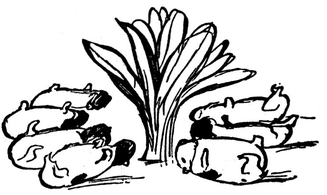
CHAPTER X
THE HISTORY OF THE SEVEN YOUNG CATS
The Seven young Cats set off on their travels with great delight and rapacity. But, on coming to the top of a high hill, they perceived at a long distance off a Clangle-Wangle (or, as it is more properly written, Clangel-Wangel), and in spite of the warning they had had, they ran straight up to it.
(Now the Clangle-Wangle is a most dangerous and delusive beast, and by no means commonly to be met with. They live in the water as well as on land, using their long tail as a sail when in the former element. Their speed is extreme, but their habits of life are domestic and superfluous, and their general demeanour pensive and pellucid. On summer evenings they may sometimes be observed near the Lake Pipple-popple, standing on their heads and humming their national melodies: they subsist entirely on vegetables, excepting when they eat veal, or mutton, or pork, or beef, or fish, or saltpetre.)
The moment the Clangle-Wangle saw the Seven young Cats approach, he ran away; and as he ran straight on for four months, and the Cats, though they continued to run, could never overtake him,—they all gradually died of fatigue and of exhaustion, and never afterwards recovered.
And this was the end of the Seven young Cats.

CHAPTER XI
THE HISTORY OF THE SEVEN YOUNG FISHES
The Seven young fishes swam across the Lake Pipple-popple, and into the river, and into the Ocean, where most unhappily for them, they saw on the 15th day of their travels, a bright blue Boss-Woss, and instantly swam after him. But the Blue Boss-Woss plunged into a perpendicular,
spicular,
orbicular,
quadrangular,
circular depth of soft mud,
where in fact his house was.
And the Seven young Fishes, swimming with great and uncomfortable velocity, plunged also into the mud quite against their will, and not being accustomed to it, were all suffocated in a very short period.
And that was the end of the Seven young Fishes.

CHAPTER XII
OF WHAT OCCURRED SUBSEQUENTLY
After it was known that the
Seven young Parrots,
and the Seven young Storks,
and the Seven young Geese,
and the Seven young Owls,
and the Seven young Guinea Pigs,
and the Seven young Cats,
and the Seven young Fishes,
were all dead, then the Frog, and the Plum-pudding Flea, and the Mouse, and the Clangel Wangel, and the Blue Boss-Woss, all met together to rejoice over their good fortune. And they collected the Seven Feathers of the Seven young Parrots, and the Seven Bills of the Seven young Storks, and the Lettuce, and the Cherry, and having placed the latter on the Lettuce, and the other objects in a circular arrangement at their base, they danced a hornpipe round all these memorials until they were quite tired: after which they gave a tea-party, and a garden-party, and a ball, and a concert, and then returned to their respective homes full of joy and respect, sympathy, satisfaction, and disgust.
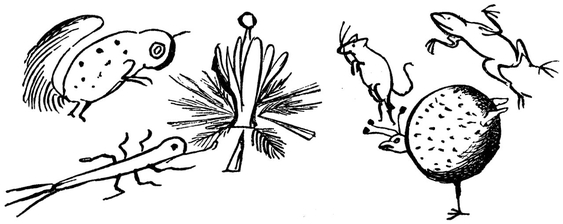
CHAPTER XIII
OF WHAT BECAME OF THE PARENTS OF THE FORTY-NINE CHILDREN
But when the two old Parrots,
and the two old Storks,
and the two old Geese,
and the two old Owls,
and the two old Guinea Pigs,
and the two old Cats,
and the two old Fishes,
became aware by reading in the newspapers, of the calamitous extinction of the whole of their families, they refused all further sustenance; and sending out to various shops, they purchased great quantities of Cayenne Pepper, and Brandy, and Vinegar, and blue Sealing-wax, besides Seven immense glass Bottles with air-tight stoppers. And having done this, they ate a light supper of brown bread and Jerusalem Artichokes, and took an affecting and formal leave of the whole of their acquaintance, which was very numerous and distinguished, and select, and responsible, and ridiculous.
CHAPTER XIV
CONCLUSION
And after this, they filled the bottles with the ingredients for pickling, and each couple jumped into a separate bottle, by which effort of course they all died immediately, and become thoroughly pickled in a few minutes; having previously made their wills (by the assistance of the most eminent Lawyers of the District), in which they left strict orders that the Stoppers of the Seven Bottles should be carefully sealed up with the blue Sealing-wax they had purchased; and that they themselves in the Bottles should be presented to the principal museum of the city of Tosh, to be labelled with Parchment or any other anti-congenial succedaneum, and to be placed on a marble table with silver-gilt legs, for the daily inspection and contemplation, and for the perpetual benefit of the pusillanimous public.
And if ever you happen to go to Gramble-Blamble, and visit that museum in the city of Tosh, look for them on the Ninety-eighth table in the Four hundred and twenty-seventh room of the right-hand corridor of the left wing of the Central Quadrangle of that magnificent building; for if you do not, you certainly will not see them.
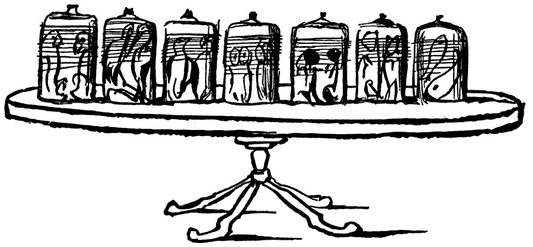
NONSENSE COOKERY
Extract from the Nonsense Gazette, for August, 1870.
Our readers will be interested in the following communications from our valued and learned contributor, Professor Bosh, whose labours in the fields of Culinary and Botanical science, are so well known to all the world. The first three Articles richly merit to be added to the Domestic cookery of every family; those which follow, claim the attention of all Botanists, and we are happy to be able through Dr. Bosh’s kindness to present our readers with illustrations of his discoveries. All the new flowers are found in the valley of Verrikwier, near the lake of Oddgrow, and on the summit of the hill Orfeltugg.’
THREE RECEIPTS FOR DOMESTIC COOKERY
TO MAKE AN AMBLONGUS PIE
Take 4 pounds (say  pounds) of fresh Amblongusses, and put them in a small pipkin.
pounds) of fresh Amblongusses, and put them in a small pipkin.
Cover them with water and boil them for 8 hours incessantly, after which add 2 pints of new milk, and proceed to boil for 4 hours more.
When you have ascertained that the Amblongusses are quite soft, take them out and place them in a wide pan, taking care to shake them well previously.
Grate some nutmeg over the surface, and cover them carefully with powdered gingerbread, curry-powder, and a sufficient quantity of Cayenne papper.
Remove the pan into the next room, and place it on the floor. Bring it back again, and let it simmer for three-quarters of an hour. Shake the pan violently till all the Amblongusses have become of a pale purple colour.
Then, having prepared the paste, insert the whole carefully, adding at the same time a small pigeon, 2 slices of beef, 4 cauliflowers, and any number of oysters.
Watch patiently till the crust begins to rise, and add a pinch of salt from time to time.
Serve up in a clean dish, and throw the whole out of window as fast as possible.
TO MAKE CRUMBOBBLIOUS CUTLETS
Procure some strips of beef, and having cut them into the smallest possible slices, proceed to cut them still smaller, eight or perhaps nine times.
When the whole is thus minced, brush it up hastily with a new clothes-brush, and stir round rapidly and capriciously with a salt-spoon or a soup-ladle.
Place the whole in a saucepan, and remove it to a sunny place,—say the roof of the house if free from sparrows or other birds,—and leave it there for about a week.
At the end of that time add a little lavender, some oil of almonds, and a few herring-bones; and then cover the whole with 4 gallons of clarified crumbobblious sauce, when it will be ready for use.
Cut it into the shape of ordinary cutlets, and serve up in a clean tablecloth or dinner-napkin.
TO MAKE GOSKY PATTIES
Take a Pig, three or four years of age, and tie him by the off-hind leg to a post. Place 5 pounds of currants, 3 of sugar, 2 pecks of peas, 18 roast chestnuts, a candle, and six bushels of turnips, within his reach; if he eats these, constantly provide him with more.
Then procure some cream, some slices of Cheshire cheese, four quires of foolscap paper, and a packet of black pins. Work the whole into a paste, and spread it out to dry on a sheet of clean brown waterproof linen.
When the paste is perfectly dry, but not before, proceed to beat the Pig violently, with the handle of a large broom. If he squeals, beat him again.
Visit the paste and beat the Pig alternately for some days, and ascertain if at the end of that period the whole is about to turn into Gosky Patties.
If it does not then, it never will; and in that case the Pig may be let loose, and the whole process may be considered as finished.
NONSENSE BOTANY
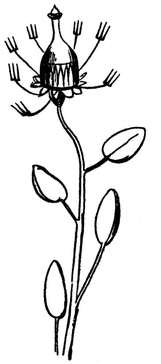
Bottlephorkia Spoonifolia
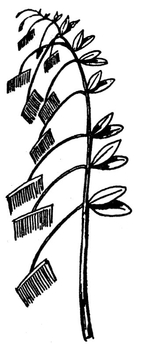
Smalltoothcombia Domestica
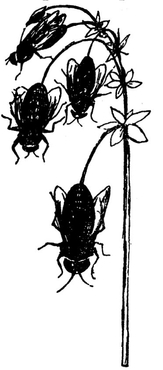
Bluebottlia Buzztilentia
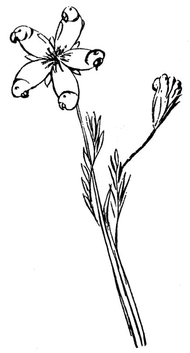
Pollybirdia Singularis
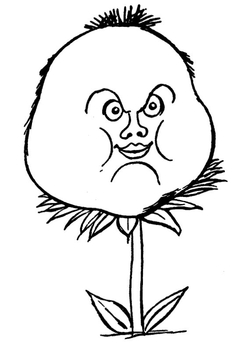
Phattfacia Stupenda
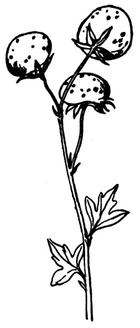
Plumbunnia Nutritiosa
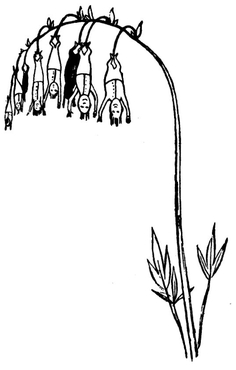
Manypeeplia Upsidownia

Guittara Pensilis
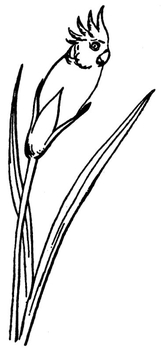
Cockatooca Superba
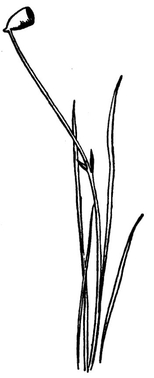
Baccopipia Gracilis
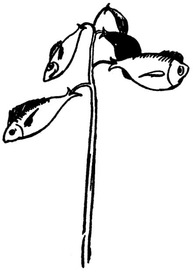
Fishia Marina
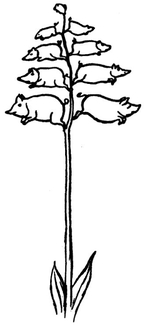
Piggiawiggia Pyramidalis
NONSENSE ALPHABETS
A

A was an ant
Who seldom stood still
And who made a nice house
In the side of a hill.
a!
Nice little Ant!
B

B was a book
With a binding of blue
And pictures and stories
For me and for you.
b!
Nice little Book.
C
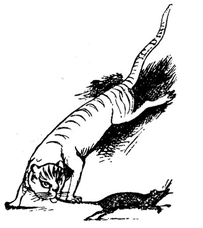
C was a cat,
Who ran after a rat
But his courage did fail
When she seized on his tail.
c!
Crafty old Cat!
D
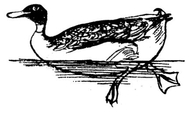
D was a duck
With spots on his back
Who lived in the water
And always said, quack!
d!
Dear little Duck!
E
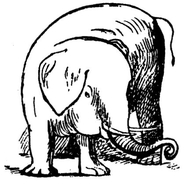
E was an elephant,
Stately and wise;
He had tusks and a trunk,
And two queer little eyes.
e!
O what funny small eyes!
F

F was a fish,
Who was caught in a net,
But he got out again,
And is quite alive yet.
f!
Lively young Fish!
G
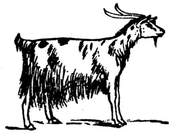
G was a goat
Who was spotted with brown
When he did not lie still,
He walked up and down.
g!
Good little Goat!
H
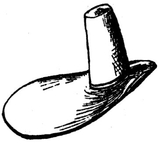
H was a hat
Which was all on one side,
Its crown was too high
And its brim was too wide.
h!
O! what a Hat!
I
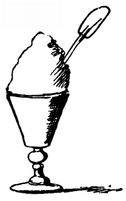
I was some ice
So white and so nice
But which nobody tasted,
And so it was wasted.
i!
All that good Ice!
J
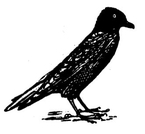
J was a jack-daw
Who hopped up and down
In the principal street
Of a neighbouring town.
j!
All through the town!
K
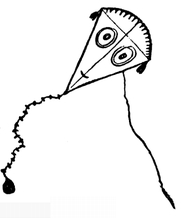
K was a kite
Which flew out of sight
Above houses so high
Quite into the sky.
k!
Fly away, Kite!
L
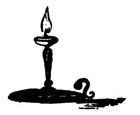
L was a light
Which burned all the night
And lighted the gloom,
Of a very dark room.
l!
Useful nice light!
M
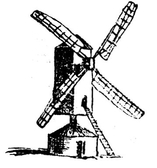
M was a mill
Which stood on a hill
And turned round and round
With a loud hummy sound.
m!
useful old Mill!
N
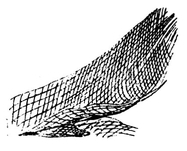
N was a net,
Which was thrown in the sea,
To catch fish for dinner
For you and for me.
n!
Nice little Net!
O

O was an orange
So yellow and round;
When it fell off the tree,
It fell down to the ground
o!
Down to the ground!
P
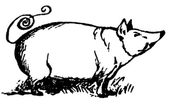
P was a pig
Who was not very big
But his tail was too curly,
And that made him surly.
p!
Cross little Pig!
Q

Q was a quail,
With a very short tail
And he fed upon corn
In the evening and morn.
q!
Quaint little Quail.
R

R was a rabbit
Who had a bad habit
Of eating the flowers
In gardens and bowers.
r!
Naughty fat Rabbit!
S
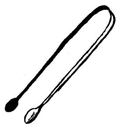
S was the sugar-tongs
Nippity-nee,
To take up the sugar
To put in our tea.
s!
Nippity nee!
T

T was a tortoise
All yellow and black;
He walked slowly away,
And he never came back.
t!
Torty never came back!
U
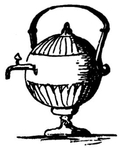
U was an urn
All polished and bright
And full of hot water
At noon and at night.
u!
Useful old urn!
V
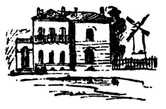
V was a villa
Which stood on a hill
By the side of a river
And close to a mill.
v!
Nice little Villa!
W
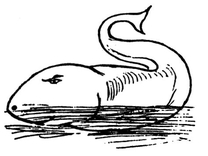
W was a whale
With a very long tail
Whose movements were frantic
Across the Atlantic.
w!
Monstrous old Whale!
X
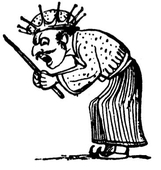
X was King Xerxes,
Who more than all Turks is
Renown’d for his fashion
Of fury and passion.
x!
Angry old Xerxes!
Y
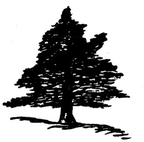
Y was a yew,
Which flourished and grew,
By a quiet abode
Near the side of a road.
y!
Dark little Yew!
Z

Z was some zinc
So shiny and bright,
Which caused you to wink
In the sun’s merry light.
z!
Beautiful Zinc!
A

a
A was once an apple-pie,
Pidy
Widy
Tidy
Pidy
Nice insidy
Apple-Pie.
B
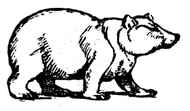
b
B was once a little bear,
Beary!
Wary!
Hairy!
Beary!
Taky cary!
Little Bear!
C

c
C was once a little cake,
Caky,
Baky
Maky
Caky,
Taky Caky,
Little Cake!
D
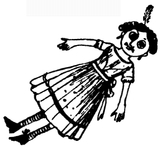
d
D was once a little doll,
Dolly,
Molly,
Polly
Nolly,
Nursy Dolly,
Little Doll!
E

e
E was once a little eel,
Eely
Weely
Peely
Eely
Twirly, Tweely
Little Eel!
F

f
F was once a little fish
Fishy
Wish
Squishy
Fishy
In a Dishy
Little Fish!
G

g
G was once a little goose,
Goosy
Moosy
Boosey
Goosey
Waddly-woosy
Little Goose!
H
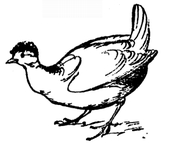
h
H was once a little hen,
Henny
Chenny
Tenny
Henny
Eggsy-any
Little Hen?
I

i
I was once a bottle of ink,
Inky
Dinky
Thinky
Inky,
Blacky Minky
Bottle of Ink!
J
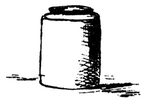
j
J was once a jar of jam,
Jammy,
Mammy,
Clammy,
Jammy,
Sweety—Swammy,
Jar of Jam!
K
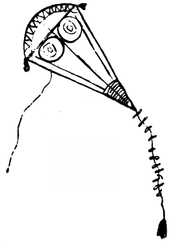
k
K was once a little kite,
Kity
Whity
Flighty
Kity
Out of Sighty—
Little Kite!
L
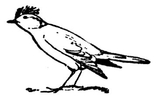
l
L was once a little lark,
Larky!
Marky!
Harky!
Larky!
In the Parky,
Little Lark!
M

m
M was once a little mouse,
Mousey
Bousey
Sousy
Mousy,
In the Housy
Little Mouse!
N

n
N was once a little needle,
Needly
Tweedly
Threedly
Needly
Wisky—wheedly
Little Needle!
O
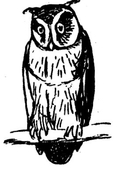
o
O was once a little owl,
Owly,
Prowly,
Howly
Owly
Browny fowly
Little Owl!
P
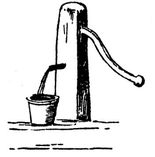
p
P was once a little pump,
Pumpy
Slumpy
Flumpy
Pumpy
Dumpy, Thumpy
Little Pump!
Q

q
Q was once a little quail,
Quaily
Faily
Daily
Quaily
Stumpy-taily
Little Quail!
R
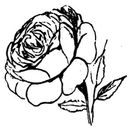
r
R was once a little rose,
Rosy
Posy
Nosy
Rosy
Blows-y—grows-y
Little Rose!
S
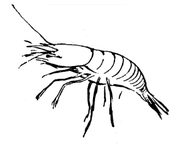
s 
S was once a little shrimp
Shrimpy
Nimpy
Flimpy
Shrimpy
Jumpy—jimpy
Little Shrimp!
T
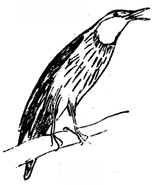
t
T was once a little thrush,
Thrushy!
Hushy!
Bushy!
Thrushy!
Flitty—Flushy—
Little Thrush!
U
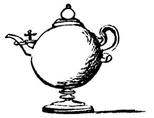
u
U was once a little urn,
Urny
Burny
Turny
Urny,
Bubbly—burny,
Little Urn.
V
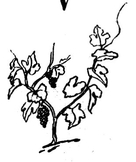
v
V was once a little vine,
Viny
Winy
Twiny
Viny
Twisty-twiny
Little Vine!
W
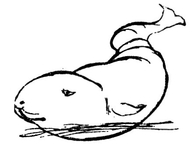
w
W was once a whale,
Whaly
Scaly
Shaly
Whaly
Tumbly-taily
Mighty Whale!
X
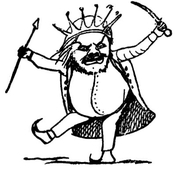
x
X was once a great king Xerxes,
Xerxy
Perxy
Turxy
Xerxy
Linxy Lurxy
Great King Xerxes!
Y
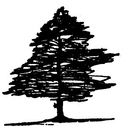
y
Y was once a little yew,
Yewdy,
Fewdy
Crudy
Yewdy
Growdy, grewdy,
Little Yew!
Z
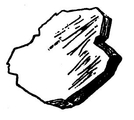
z
Z was once a piece of zinc
Tinky
Winky
Blinky
Tinky
Tinkly Minky
Piece of Zinc!
A
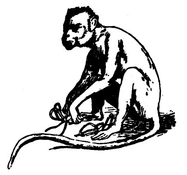
A was an ape,
Who stole some white tape
And tied up his toes
In four beautiful bows.
a!
Funny old Ape!
B

B was a bat,
Who slept all the day,
And fluttered about,
When the sun went away.
b!
Brown little bat!
C
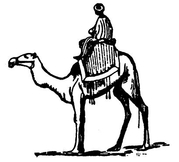
C was a camel,
You rode on his hump,
And if you fell off,
You come down such a bump!
c!
What a high Camel!
D
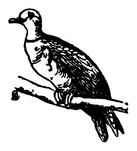
D was a dove
Who lived in a wood
With such pretty soft wings,
And so gentle and good.
d!
Dear little Dove!
E
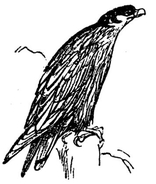
E was an eagle
Who sate on the rocks
And looked down on the fields
And the far away flocks.
e!
Beautiful Eagle!
F
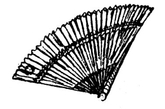
F was a fan
Made of beautiful stuff
And when it was used
It went—Puffy-puff-puff!
f!
Nice little fan.
G

G was a gooseberry
Perfectly red;
To be made into jam
And eaten with bread.
g!
Gooseberry red!
H
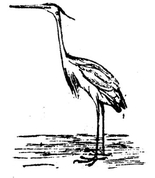
H was a heron
Who stood in a stream
The length of his neck
And his legs, was extreme
h!
Long-legged Heron!
I
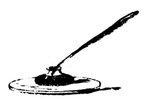
I was an inkstand
Which stood on a table
With a nice pen to write with,
When we are able!
i!
Neat little inkstand!
J
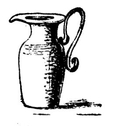
J was a jug,
So pretty and white
With fresh water in it
At morning and night.
j!
Nice little jug!
K
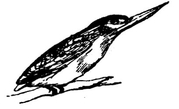
K was a kingfisher,
Quickly he flew
So bright and so pretty,
Green, purple, and blue.
k!
Kingfisher, blue!
L
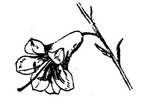
L was a lily
So white and so sweet
To see it and smell it
Was quite a nice treat!
l!
Beautiful Lily
M
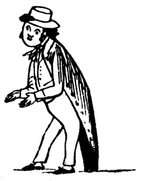
M was a man,
Who walked round and round,
And he wore a long coat
That came down to the ground.
m!
Funny old Man!
N

N was a nut
So smooth and so brown,
And when it was ripe
It fell tumble-dum-down.
n!
Nice little Nut!
O

O was an oyster
Who lived in his shell
If you let him alone
He felt perfectly well.
o!
Open mouth’d Oyster!
P
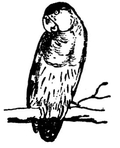
P was a polly
All red blue and green,
The most beautiful polly
That ever was seen.
p!
Poor little Polly!
Q
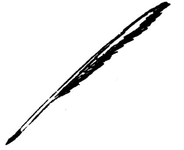
Q was a quill
Made into a pen,
But I do not know where
And I cannot say when.
q!
Nice little Quill!
R
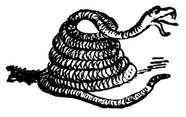
R was a rattlesnake
Rolled up so tight
Those who saw him ran quickly
For fear he should bite.
r!
Rattlesnake bite!
S

S was a screw
To screw down a box
And then it was fastened
Without any locks.
s!
Valuable screw!
T

T was a thimble
Of silver so bright
When placed on the finger
It fitted so tight!
t!
Nice little thimble!
U
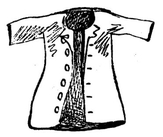
U was an upper-coat
Woolly and warm
To wear over all
In the snow or the storm.
u!
What a nice upper-coat!
V
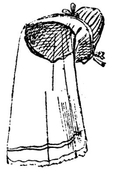
V was a veil
With a border upon it
And a riband to tie it
All round a pink bonnet.
v!
Pretty green Veil!
W
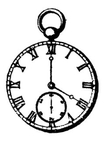
W was a watch
Where in letters of gold
The hour of the day
You might always behold.
w!
Beautiful watch!
X
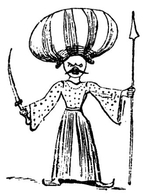
X was King Xerxes
Who wore on his head
A mighty large turban,
Green, yellow, and red.
x!
Look at King Xerxes!
Y

Y was a yak
From the land of Thibet,
Except his white tail
He was all black as jet.
y!
Look at the Yak!
Z
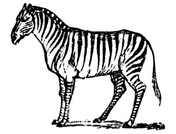
Z was a zebra,
All striped white and black,
And if he were tame
You might ride on his back.
z!
Pretty striped Zebra!
III
MORE NONSENSE PICTURES, RHYMES, BOTANY &c. (1872)
NONSENSE BOTANY
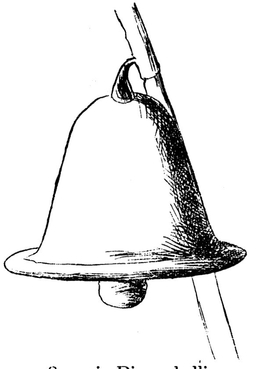
Stunnia Dinnerbellia
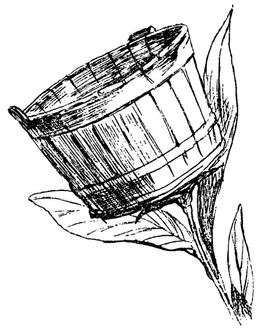
Washtubbia Circularis
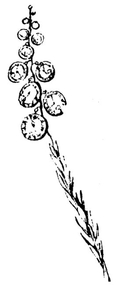
Tickia Orologica
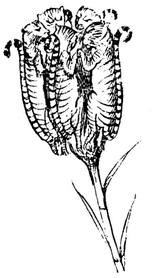
Tigerlillia Terribilis

Arthbroomia Rigida
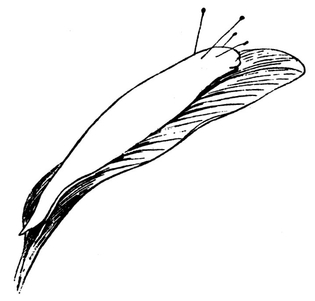
Sophtsluggia Glutinosa
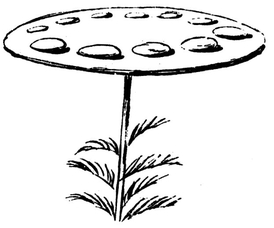
Minspysia Deliciosa
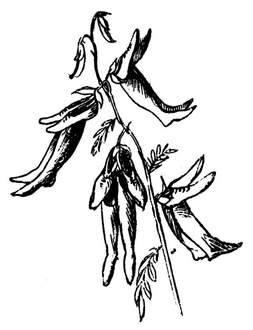
Shoebootia Utilis
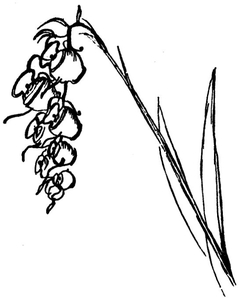
Jinglia Tinkettlia
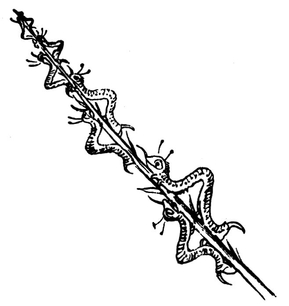
Nasticreechia Krorluppia
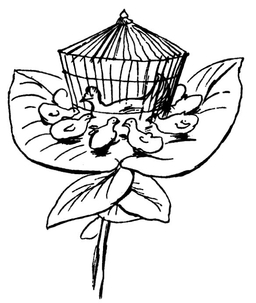
Enkoopia Chickabiddia
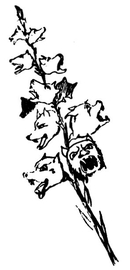
Barkia Howlaloudia
ONE HUNDRED NONSENSE PICTURES AND RHYMES

There was an old man of Hong Kong,
Who never did anything wrong;
He lay on his back, with his head in a sack,
That innocuous old man of Hong Kong.
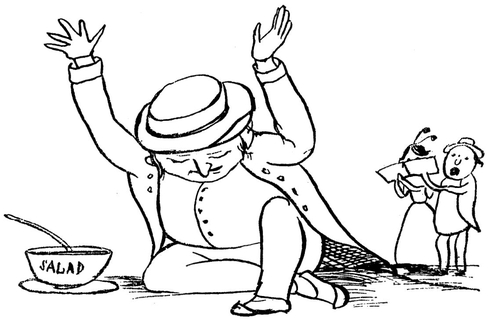
There was an old person of Fife,
Who was greatly disgusted with life;
They sang him a ballad, And fed him on salad,
Which cured that old person of Fife.

There was a young person in green,
Who seldom was fit to be seen;
She wore a long shawl, over bonnet and all,
Which enveloped that person in green.
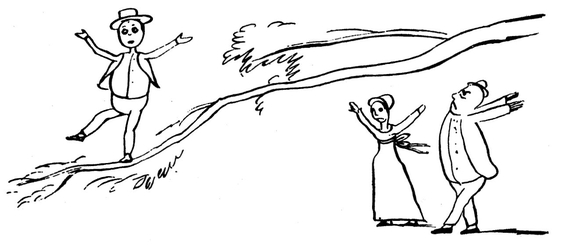
There was an old person of Slough,
Who danced at the end of a bough;
But they said, ‘If you sneeze, You might damage the trees,
You imprudent old person of Slough.’
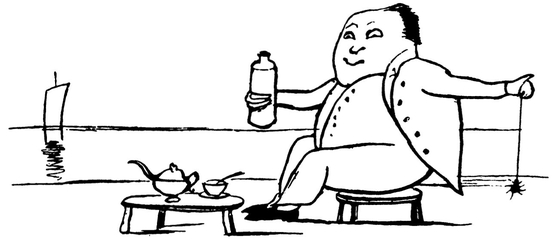
There was an old person of Putney,
Whose food was roast spiders and chutney,
Which he took with his tea, within sight of the sea,
That romantic old person of Putney.
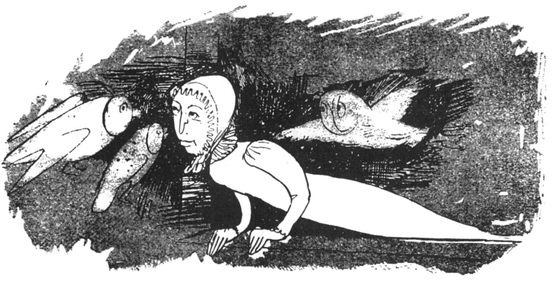
There was a young lady in white,
Who looked out at the depths of the night;
But the birds of the air, filled her heart with despair,
And oppressed that young lady in white.
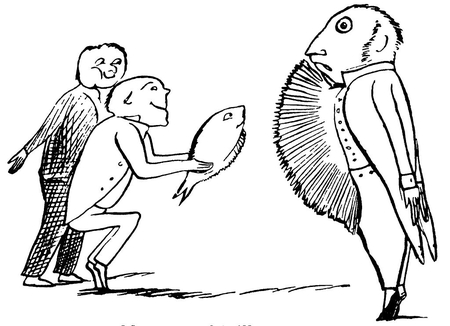
There was an old person of Brill,
Who purchased a shirt with a frill;
But they said, ‘Don’t you wish, you may’nt look like a fish,
You obsequious old person of Brill?’
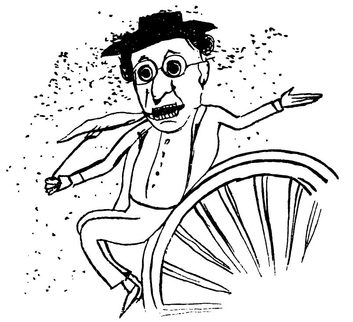
There was an old man of Three Bridges,
Whose mind was distracted by midges,
He sate on a wheel, eating underdone veal,
Which relieved that old man of Three Bridges.
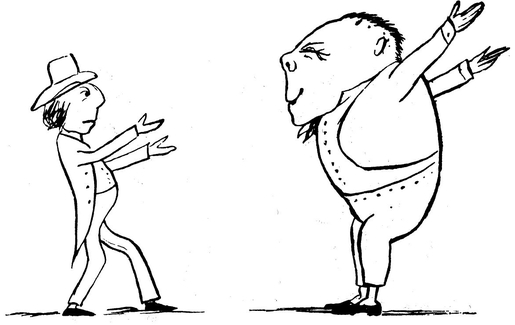
There was an old person of Wick,
Who said, ‘Tick-a-Tick, Tick-a-Tick;
Chickabee, Chickabaw,’ And he said nothing more,
That laconic old person of Wick.
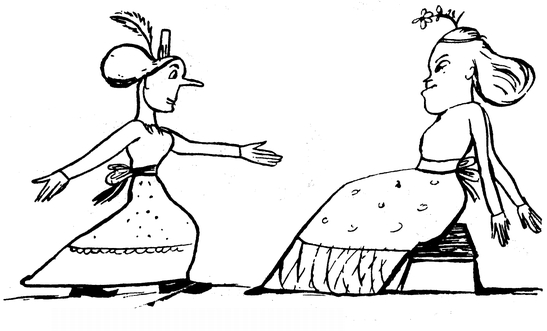
There was a young lady in blue,
Who said, ‘Is it you? Is it you?’
When they said, ‘Yes, it is,’—She replied only, ‘Whizz!’
That ungracious young lady in blue.
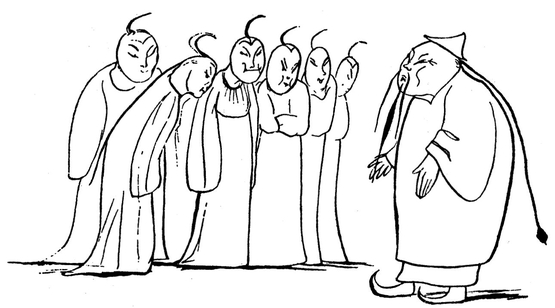
There was an old person of China,
Whose daughters were Jiska and Dinah,
Amelia and Fluffy, Olivia and Chuffy,
And all of them settled in China.
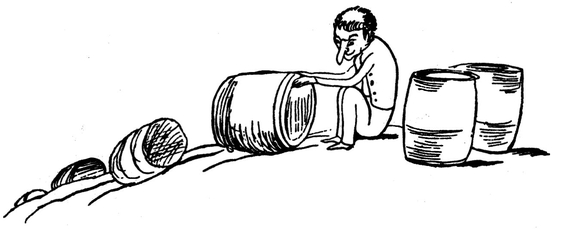
There was an old man of the Dargle
Who purchased six barrels of Gargle;
For he said, ‘I’ll sit still, and will roll them down hill,
For the fish in the depths of the Dargle.’
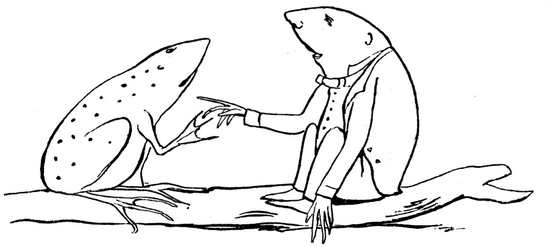
There was an old man in a Marsh,
Whose manners were futile and harsh;
He sate on a log, and sang songs to a frog,
That instructive old man in a Marsh.
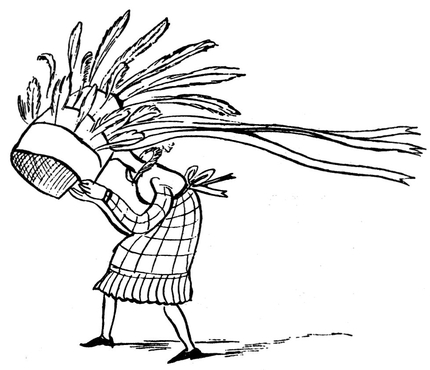
There was a young person in red,
Who carefully covered her head,
With a bonnet of leather, and three lines of feather,
Besides some long ribands of red.
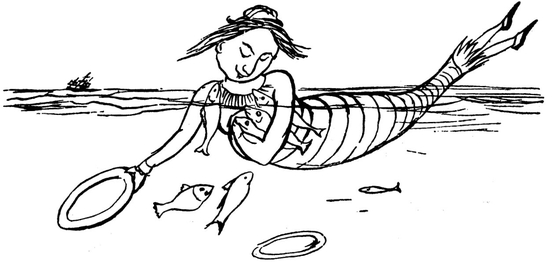
There was an old person of Bree,
Who frequented the depths of the sea;
She nurs’d the small fishes, and washed all the dishes,
And swam back again into Bree.
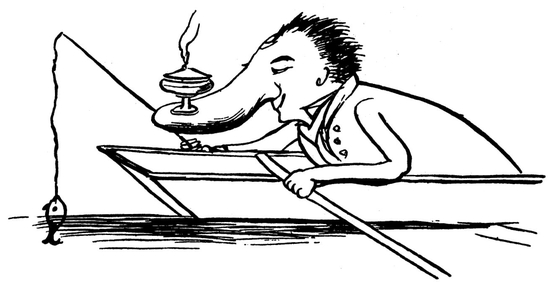
There was an old man in a barge,
Whose nose was exceedingly large;
But in fishing by night, It supported a light,
Which helped that old man in a barge.
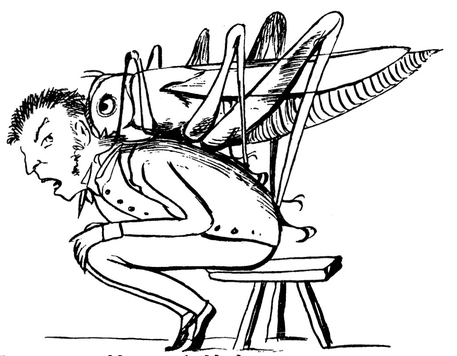
There was an old person in black,
A Grasshopper jumped on his back;
When it chirped in his ear, He was smitten with fear,
That helpless old person in black.
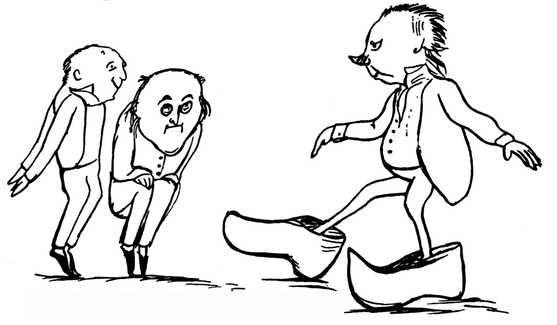
There was an old man of Toulouse
Who purchased a new pair of shoes;
When they asked, ‘Are they pleasant?’—He said, ‘Not at present!’
That turbid old man of Toulouse.
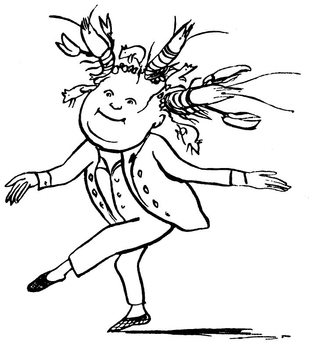
There was an old man of Blackheath,
Whose head was adorned with a wreath,
Of lobsters and spice, pickled onions and mice,
That uncommon old man of Blackheath.
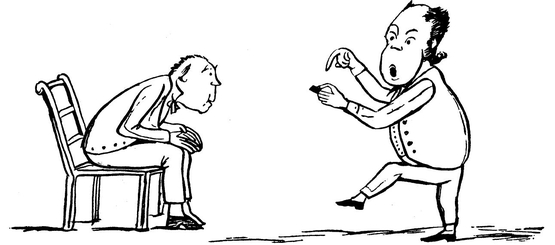
There was an old man on the Humber,
Who dined on a cake of burnt Uumber;
When he said—‘It’s enough!’—They only said, ‘Stuff!
You amazing old man on the Humber!’
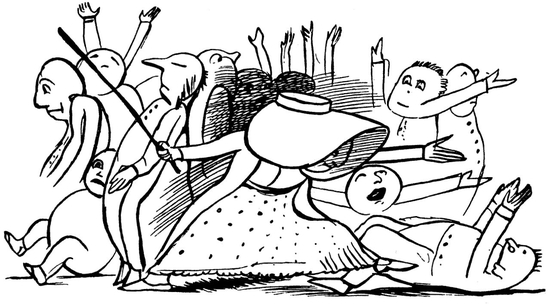
There was an old person of Stroud,
Who was horribly jammed in a crowd;
Some she slew with a kick, some she scrunched with a stick,
That impulsive old person of Stroud.
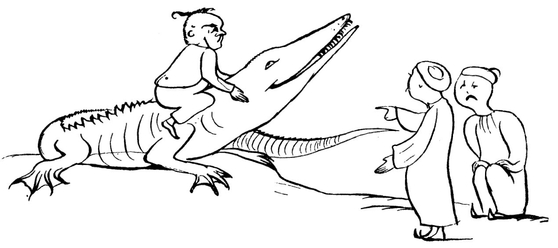
There was an old man of Boulak,
Who sate on a Crocodile’s back;
But they said, ‘Tow’rds the night, he may probably bite,
Which might vex you, old man of Boulak!’
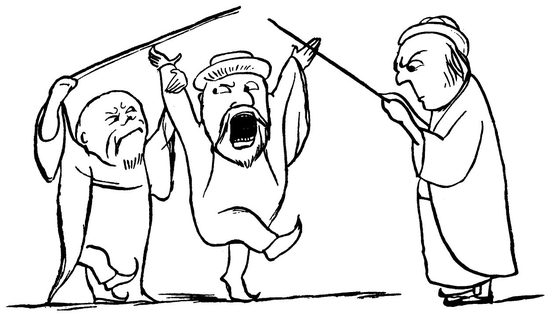
There was an old man of Ibreem,
Who suddenly threaten’d to scream:
But they said, ‘If you do, we will thump you quite blue,
You disgusting old man of Ibreem!’
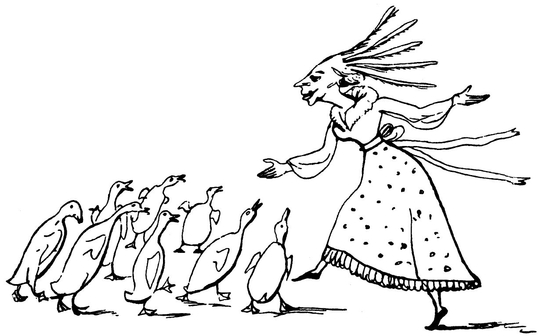
There was an old lady of France,
Who taught little ducklings to dance;
When she said, ‘Tick-a-tack!’—They only said, ‘Quack!’
Which grieved that old lady of France.
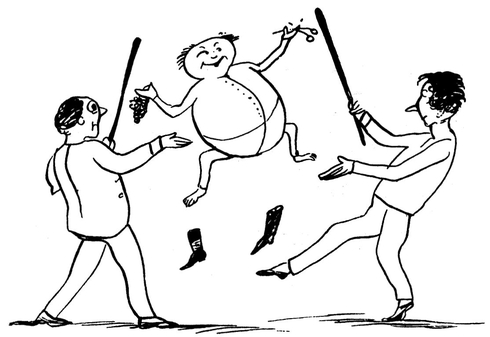
There was an old man who screamed out
Whenever they knocked him about;
So they took off his boots, And fed him with fruits,
And continued to knock him about.
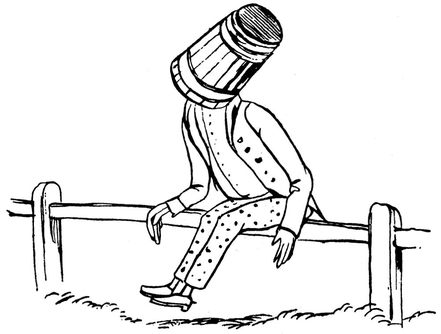
There was an old person of Woking,
Whose mind was perverse and provoking;
He sate on a rail, with his head in a pail,
That illusive old person of Woking.
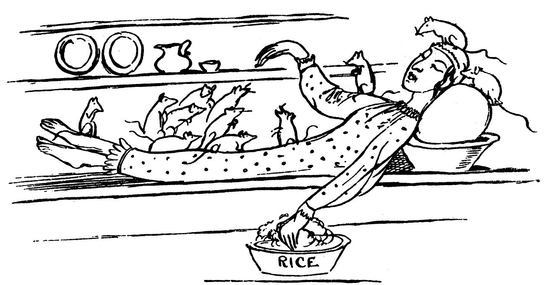
There was a young person of Bantry,
Who frequently slept in the pantry;
When disturbed by the mice, She appeased them with rice
That judicious young person of Bantry.

There was an Old Man at a Junction,
Whose feelings were wrung with compunction,
When they said ‘The Train’s gone!’ He exclaimed ‘How forlorn!’
But remained on the rails of the Junction.

There was an old man, who when little
Fell casually into a kettle;
But, growing too stout, He could never get out,
So he passed all his life in that kettle.
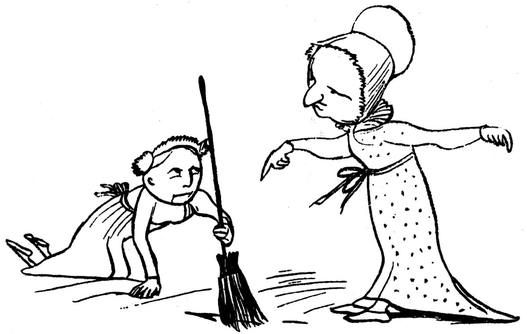
There was an old Lady of Winchelsea,
Who said, ‘If you needle or pin shall see,
On the floor of my room, sweep it up with the broom!’
—That exhaustive old Lady of Winchelsea!
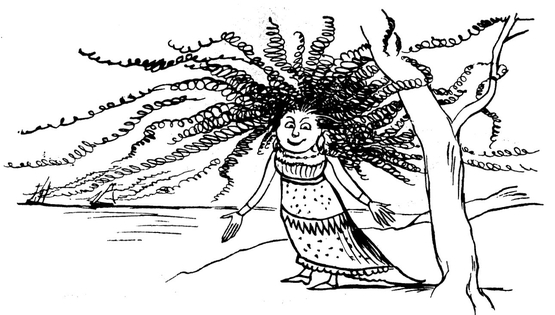
There was a young lady of Firle,
Whose hair was addicted to curl;
It curled up a tree, and all over the sea,
That expansive young lady of Firle.
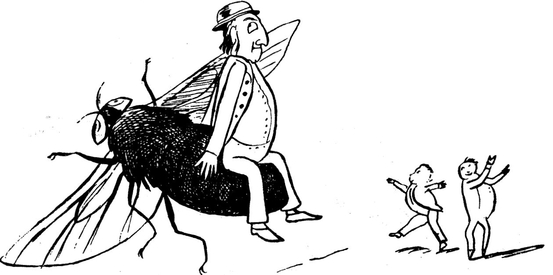
There was an old person of Rye,
Who went up to town on a fly;
But they said, ‘If you cough, you are safe to fall off!
You abstemious old person of Rye!’
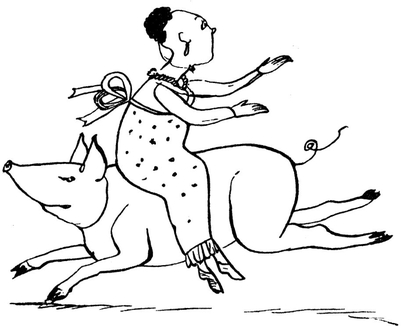
There was an old man of Messina,
Whose daughter was named Opsibeena;
She wore a small wig, and rode out on a pig,
To the perfect delight of Messina.

There is a young lady, whose nose,
Continually prospers and grows;
When it grew out of sight, she exclaimed in a fright,
‘Oh! Farewell to the end of my nose!’
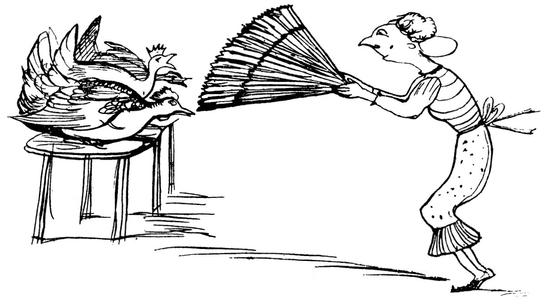
There was an old person of Cannes,
Who purchased three fowls and a fan;
Those she placed on a stool, and to make them feel cool
She constantly fanned them at Cannes.
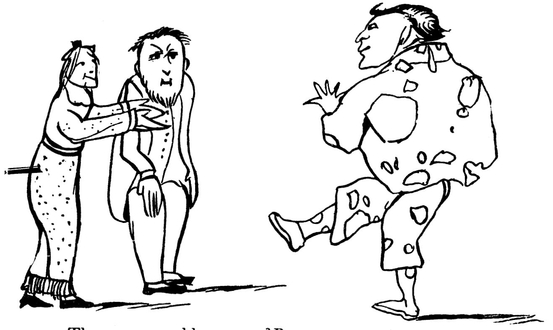
There was an old person of Barnes,
Whose garments were covered with darns;
But they said, ‘Without doubt, you will soon wear them out,
You luminous person of Barnes!’
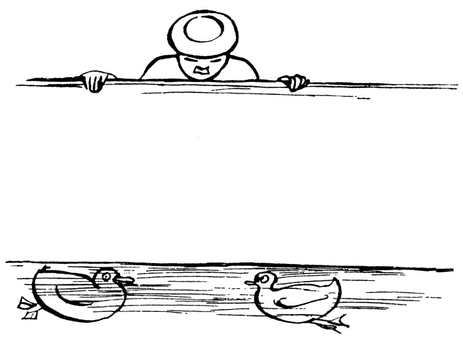
There was an old man of Cashmere,
Whose movements were scroobious and queer;
Being slender and tall, he looked over a wall,
And perceived two fat ducks of Cashmere.

There was an old person of Hove,
Who frequented the depths of a grove;
Where he studied his books, with the wrens and the rooks,
That tranquil old person of Hove.
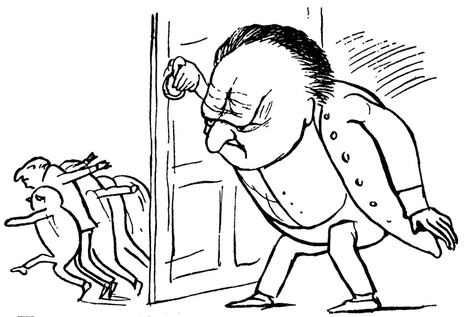
There was an old person of Down,
Whose face was adorned with a frown;
When he opened the door, for one minute or more,
He alarmed all the people of Down.
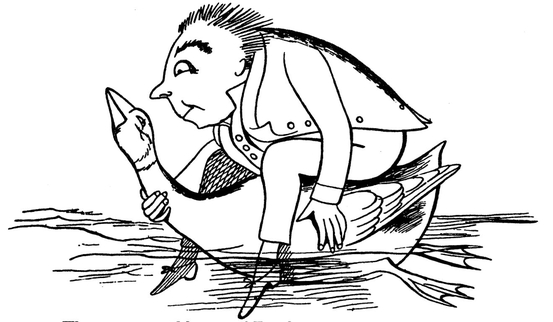
There was an old man of Dunluce,
Who went out to sea on a goose:
When he’d gone out a mile, he observ’d with a smile,
‘It is time to return to Dunluce.’
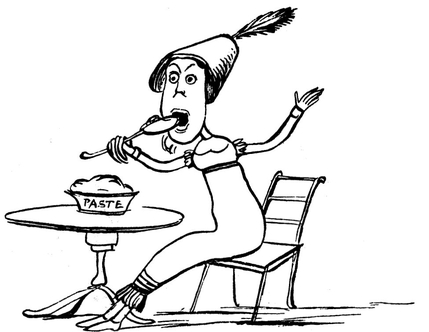
There was a young person of Kew,
Whose virtues and vices were few;
But with blameable haste, she devoured some hot paste,
Which destroyed that young person of Kew.
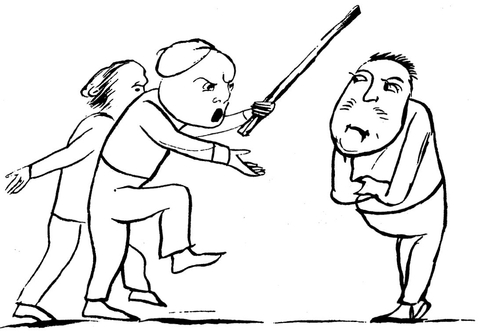
There was an old person of Sark,
Who made an unpleasant remark;
But they said, ‘Don’t you see what a brute you must be!’
You obnoxious old person of Sark.
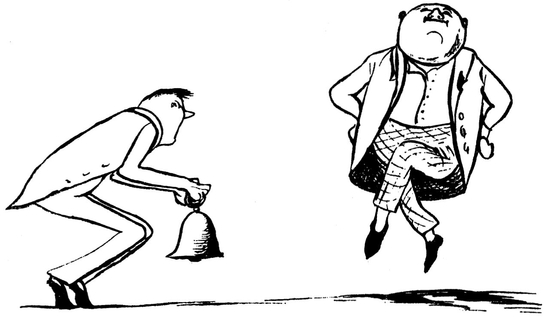
There was an old person of Filey,
Of whom his acquaintance spoke highly;
He danced perfectly well, to the sound of a bell,
And delighted the people of Filey.
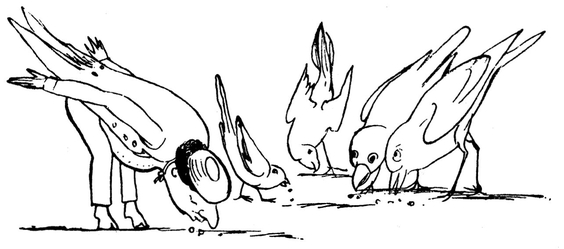
There was an old man of El Hums,
Who lived upon nothing but crumbs,
Which he picked off the ground, with the other birds round,
In the roads and the lanes of El Hums.
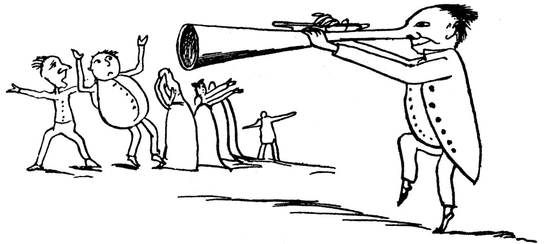
There was an old man of West Dumpet,
Who possessed a large nose like a trumpet;
When he blew it aloud, it astonished the crowd,
And was heard through the whole of West Dumpet.
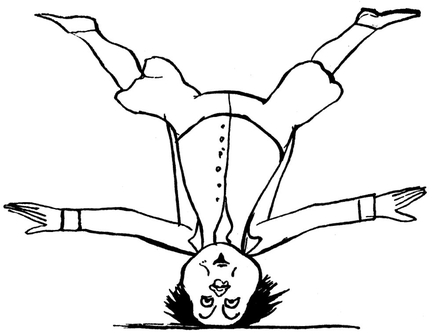
There was an old man of Port Grigor,
Whose actions were noted for vigour;
He stood on his head, till his waistcoat turned red,
That eclectic old man of Port Grigor.
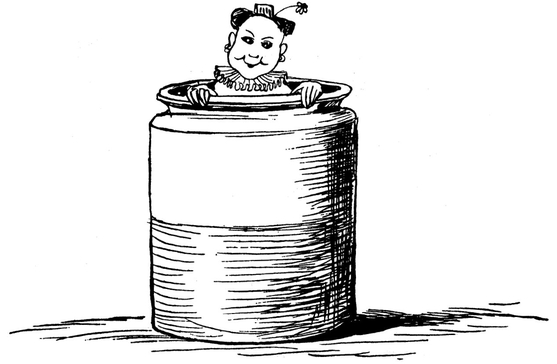
There was an old person of Bar,
Who passed all her life in a jar,
Which she painted pea-green, to appear more serene,
That placid old person of Bar.
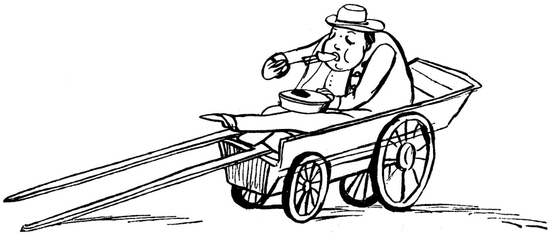
There was an old person of Pett,
Who was partly consumed by regret;
He sate in a cart, and ate cold apple tart,
Which relieved that old person of Pett.
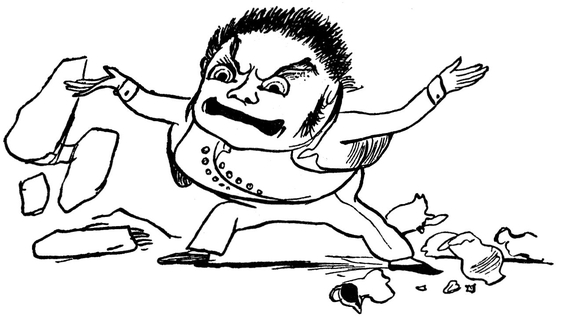
There was an old person of Newry,
Whose manners were tinctured with fury;
He tore all the rugs, and broke all the jugs
Within twenty miles’ distance of Newry.
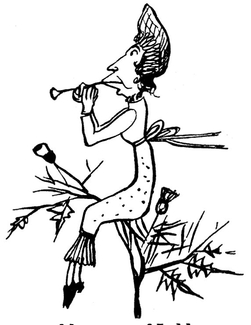
There was an old person of Jodd,
Whose ways were perplexing and odd;
She purchased a whistle, and sate on a thistle,
And squeaked to the people of Jodd.
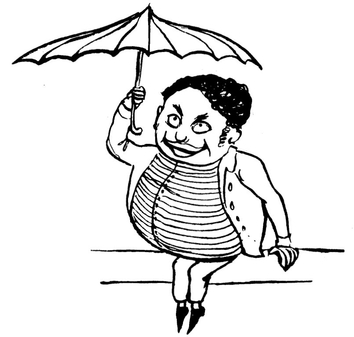
There was an old person of Shoreham,
Whose habits were marked by decorum;
He bought an Umbrella, and sate in the cellar,
Which pleased all the people of Shoreham.
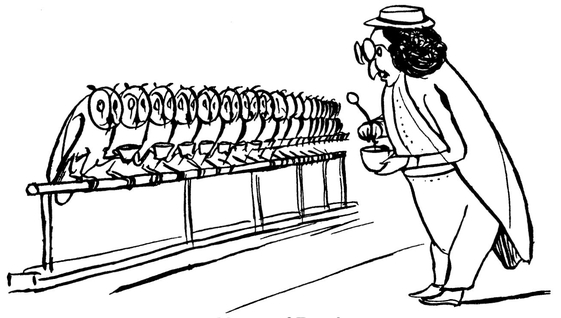
There was an old man of Dumbree,
Who taught little owls to drink tea;
For he said, ‘To eat mice, is not proper or nice,’
That amiable man of Dumbree.

There was an old person of Wilts,
Who constantly walked upon stilts;
He wreathed them with lilies, and daffy-down-dillies,
That elegant person of Wilts.
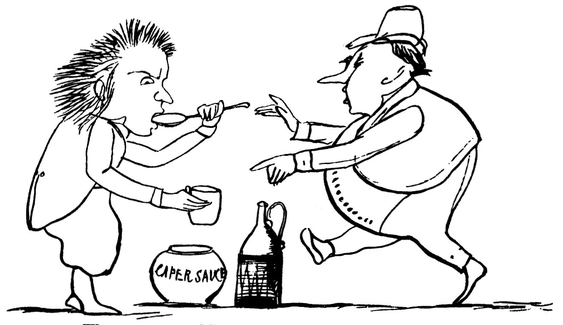
There was an old man whose remorse,
Induced him to drink Caper Sauce;
For they said, ‘If mixed up, with some cold claret-cup,
It will certainly soothe your remorse!’
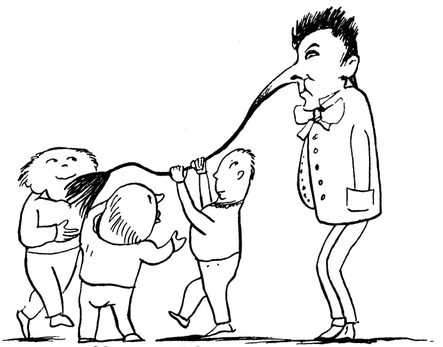
There was an old person of Cassel,
Whose nose finished off in a tassel;
But they call’d out, ‘Oh well!—don’t it look like a bell!’
Which perplexed that old person of Cassel.
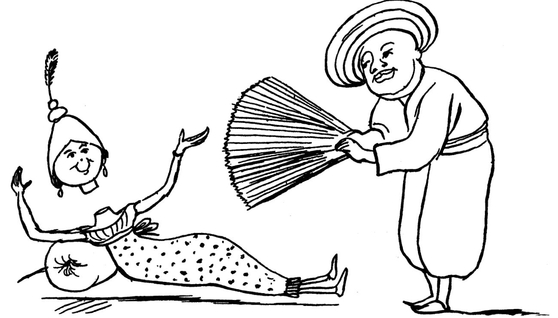
There was a young person of Janina,
Whose uncle was always a fanning her;
When he fanned off her head, she smiled sweetly, and said,
‘You propitious old person of Janina!’
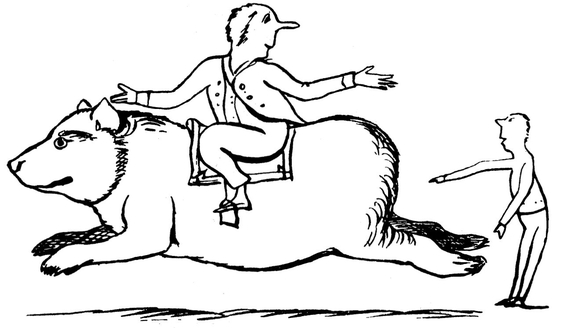
There was an old person of Ware,
Who rode on the back of a bear:
When they ask’d,—‘Does it trot?’—he said ‘Certainly not!
He’s a Moppsikon Floppsikon bear!’
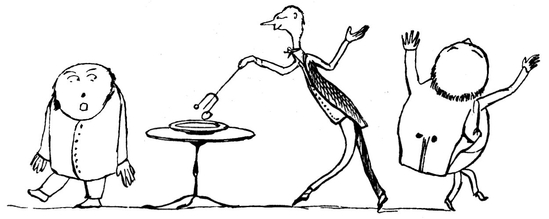
There was an old person of Dean
Who dined on one pea, and one bean;
For he said, ‘More than that, would make me too fat,’
That cautious old person of Dean.
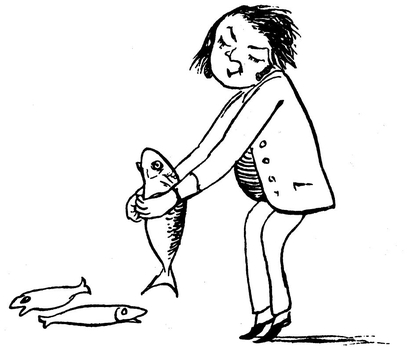
There was an old person of Dundalk,
Who tried to teach fishes to walk;
When they tumbled down dead, he grew weary, and said,
‘I had better go back to Dundalk!’
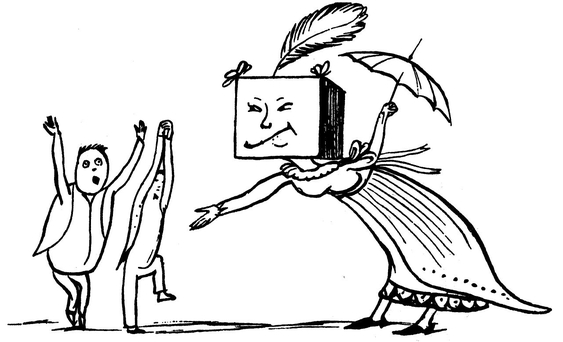
There was a young person of Ayr,
Whose head was remarkably square:
On the top, in fine weather, she wore a gold feather;
Which dazzled the people of Ayr.
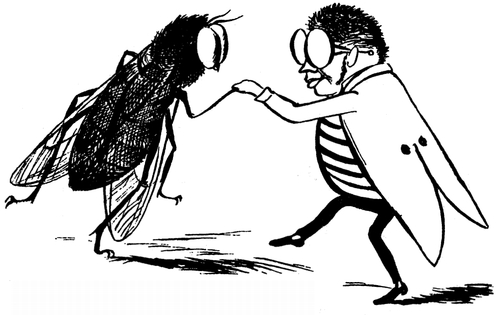
There was an old person of Skye,
Who waltz’d with a Bluebottle fly:
They buzz’d a sweet tune, to the light of the moon,
And entranced all the people of Skye.
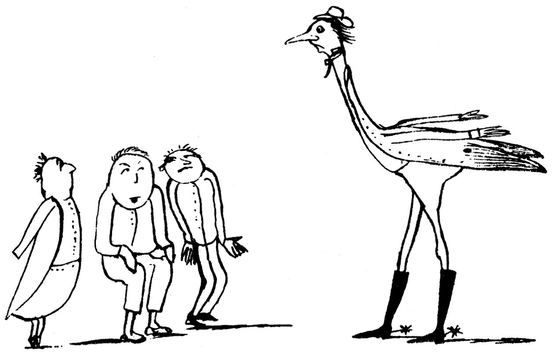
There was an old man of Dumblane,
Who greatly resembled a crane;
But they said,—‘Is it wrong, since your legs are so long,
To request you won’t stay in Dumblane?’
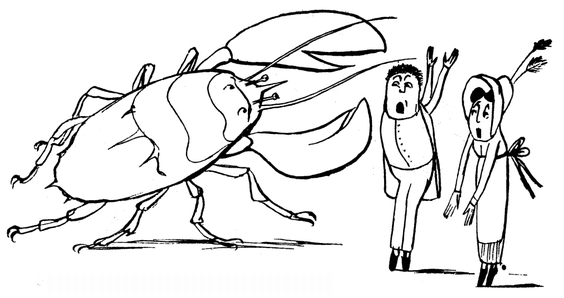
There was an old person of Hyde,
Who walked by the shore with his bride,
Till a Crab who came near, fill’d their bosoms with fear,
And they said, ‘Would we’d never left Hyde!’
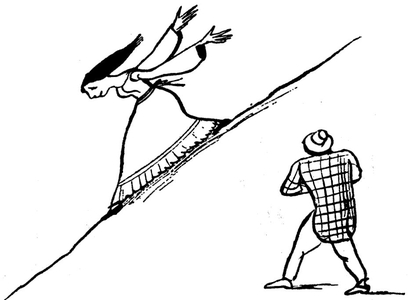
There was an old person of Rimini,
Who said, ‘Gracious! Goodness! 0 Gimini!’
When they said, ‘Please be still!’ she ran down a hill,
And was never more heard of at Rimini.

There was an old man in a tree,
Whose whiskers were lovely to see;
But the birds of the air, pluck’d them perfectly bare,
To make themselves nests in that tree.
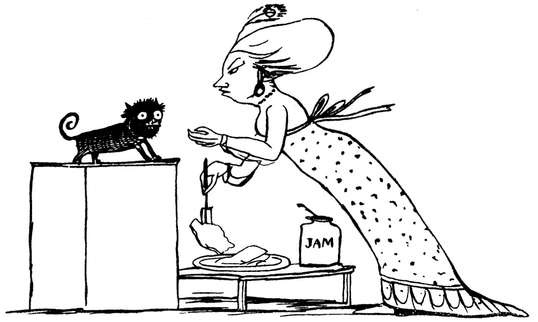
There was a young lady of Corsica,
Who purchased a little brown saucy-cur;
Which she fed upon ham, and hot raspberry jam,
That expensive young lady of Corsica.
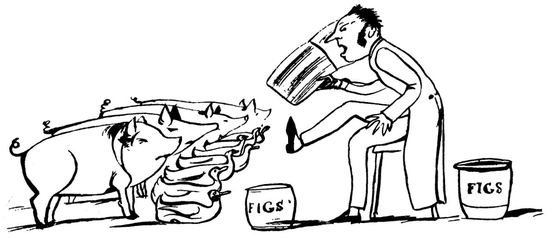
There was an old person of Bray,
Who sang through the whole of the day
To his ducks and his pigs, whom he fed upon figs,
That valuable person of Bray.
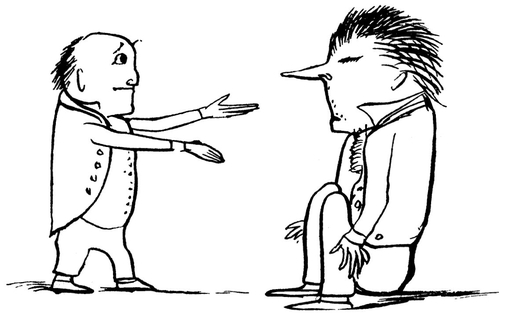
There was an old person of Sestri,
Who sate himself down in the vestry,
When they said ‘You are wrong!’—he merely said ‘Bong!’
That repulsive old person of Sestri.
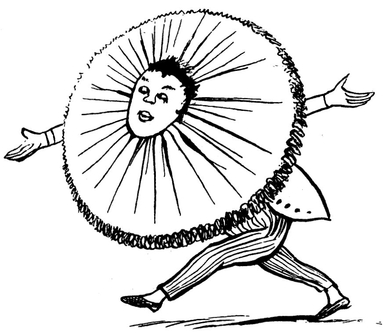
There was an old person of Bude,
Whose deportment was vicious and crude;
He wore a large ruff, of pale straw-coloured stuff,
Which perplexed all the people of Bude.
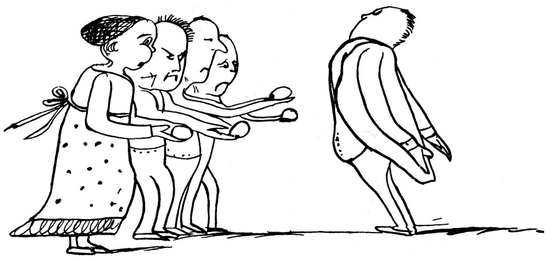
There was an old person of Bow,
Whom nobody happened to know;
So they gave him some soap, and said coldly, ‘We hope
You will go back directly to Bow!’
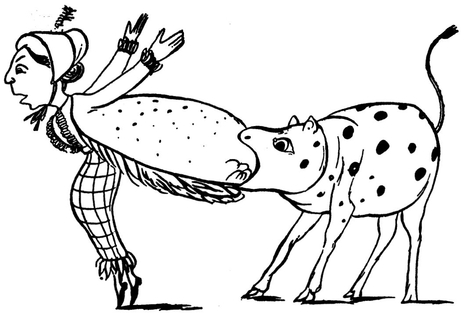
There was a young lady of Greenwich,
Whose garments were border’d with Spinach;
But a large spotty Calf, bit her shawl quite in half,
Which alarmed that young lady of Greenwich.
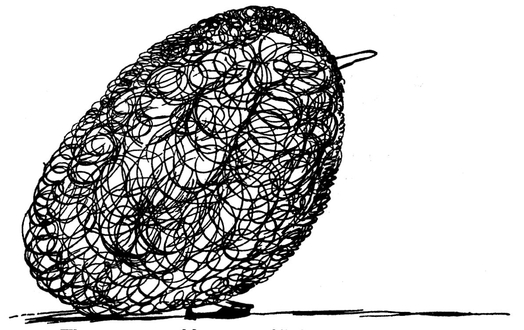
There was an old person of Brigg,
Who purchased no end of a wig;
So that only his nose, and the end of his toes,
Could be seen when he walked about Brigg.
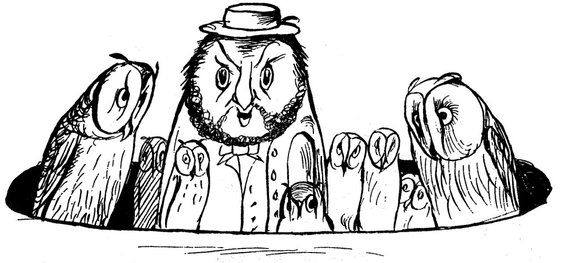
There was an old person of Crowle,
Who lived in the nest of an owl;
When they screamed in the nest, he screamed out with the rest,
That depressing old person of Crowle.
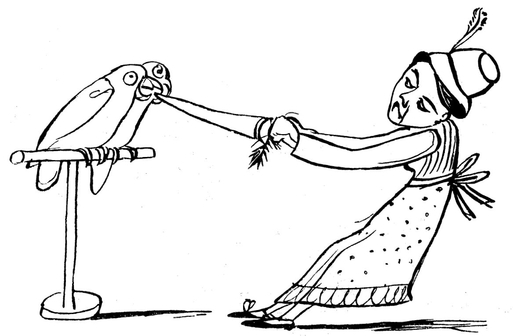
There was an old person in gray,
Whose feelings were tinged with dismay;
She purchased two parrots, and fed them with carrots,
Which pleased that old person in gray.
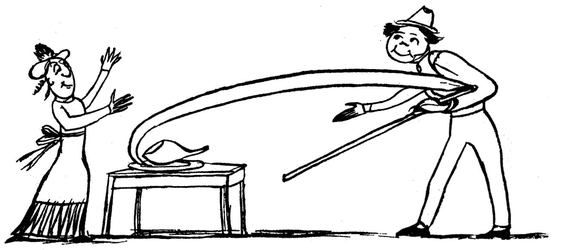
There was an old person of Blythe,
Who cut up his meat with a scythe;
When they said, ‘Well! I never!’—he cried, ‘Scythes for ever!’
That lively old person of Blythe.
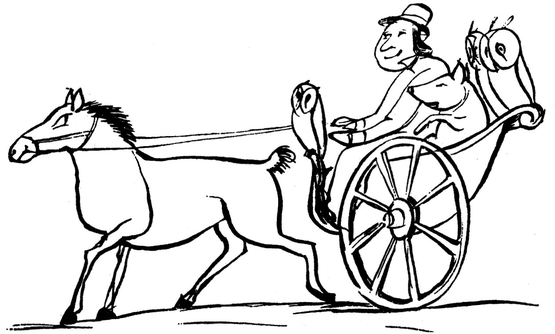
There was an old person of Ealing,
Who was wholly devoid of good feeling;
He drove a small gig, with three Owls and a Pig,
Which distressed all the people of Ealing.
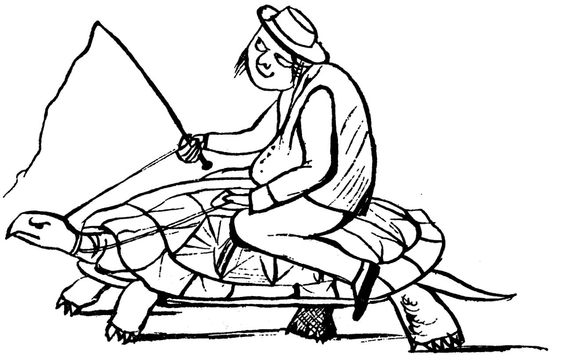
There was an old person of Ickley,
Who could not abide to ride quickly,
He rode to Karnak, on a tortoise’s back,
That moony old person of Ickley.
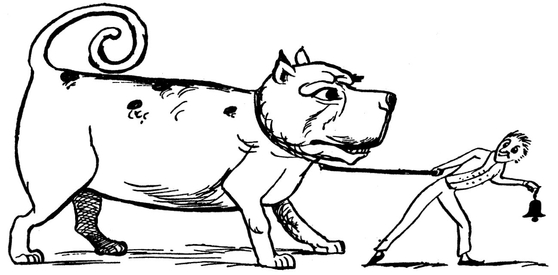
There was an old man of Ancona,
Who found a small dog with no owner,
Which he took up and down, all the streets of the town;
That anxious old man of Ancona.
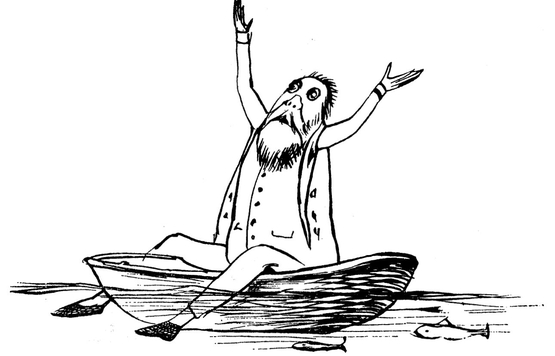
There was an old person of Grange,
Whose manners were scroobious and strange;
He sailed to St. Blubb, in a waterproof tub,
That aquatic old person of Grange.
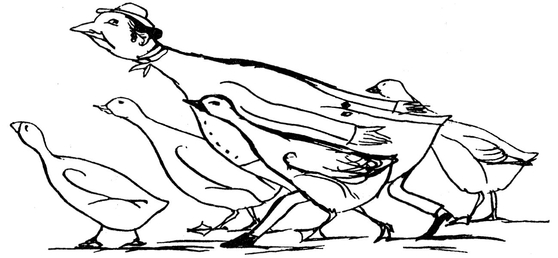
There was an old person of Nice,
Whose associates were usually Geese.
They walked out together, in all sorts of weather.
That affable person of Nice!
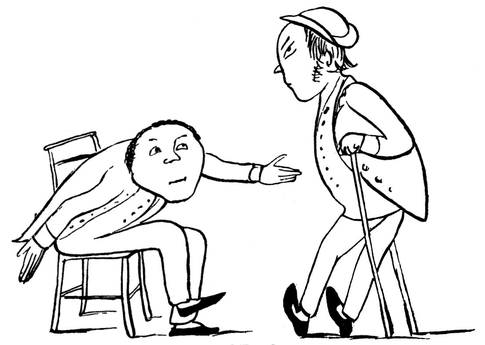
There was an old person of Deal
Who in walking, used only his heel;
When they said, ‘Tell us why?’—He made no reply;
That mysterious old person of Deal.
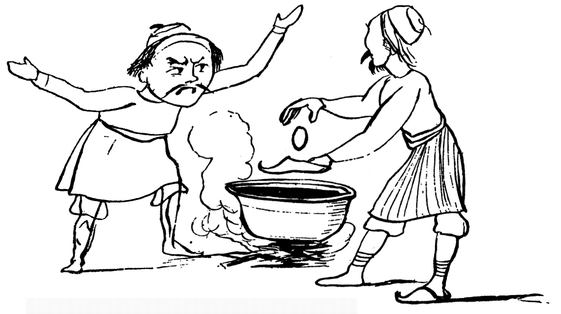
There was an old man of Thermopylae,
Who never did anything properly;
But they said, ‘If you choose, To boil eggs in your shoes,
You shall never remain in Thermopylae,’
There was an old person of Minety
Who purchased five hundred and ninety
Large apples and pears, which he threw unawares,
At the heads of the people of Minety.
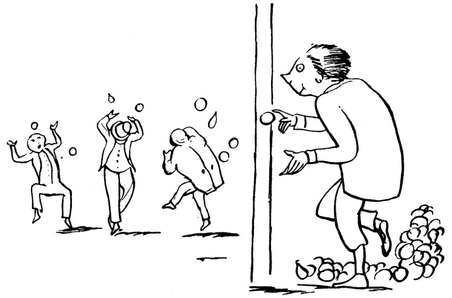
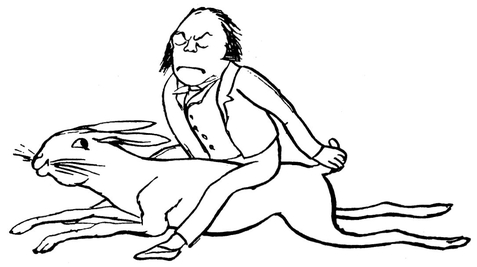
There was an old man whose despair
Induced him to purchase a hare:
Whereon one fine day, he rode wholly away,
Which partly assuaged his despair.
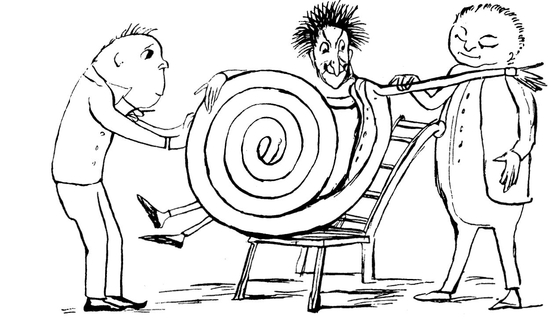
There was an old person of Pinner,
As thin as a lath, if not thinner;
They dressed him in white, and roll’d him up tight,
That elastic old person of Pinner.
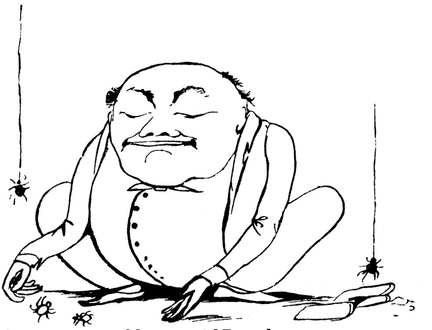
There was an old person of Bromley,
Whose ways were not cheerful or comely;
He sate in the dust, eating spiders and crust,
That unpleasing old person of Bromley.

There was an old man of Dunrose;
A parrot seized hold of his nose.
When he grew melancholy, They said, ‘His name’s Polly,’
Which soothed that old man of Dunrose.

There was an old man on the Border,
Who lived in the utmost disorder;
He danced with the cat, and made tea in his hat,
Which vexed all the folks on the Border.
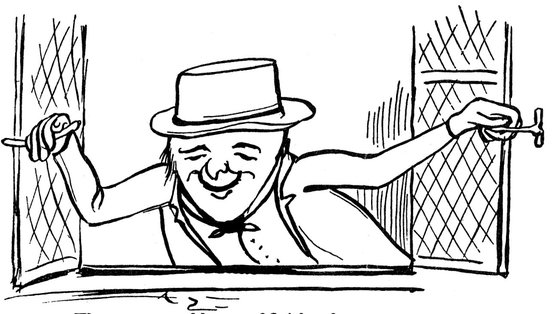
There was an old man of Spithead,
Who opened the window, and said,—
‘Fil-jomble, fil-jumble, Fil-rumble-come-tumble!’
That doubtful old man of Spithead.
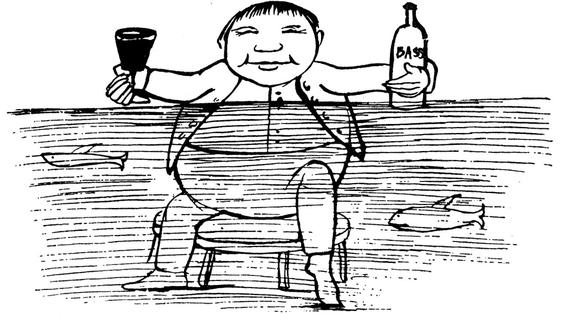
There was an old person of Sheen,
Whose expression was calm and serene;
He sate in the water, and drank bottled porter,
That placid old person of Sheen.
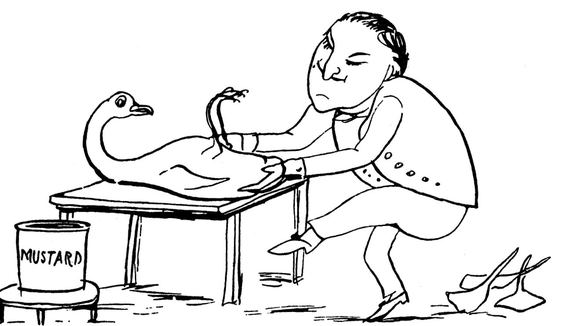
There was an old person of Florence,
Who held mutton chops in abhorrence;
He purchased a Bustard, and fried him in Mustard,
Which choked that old person of Florence.
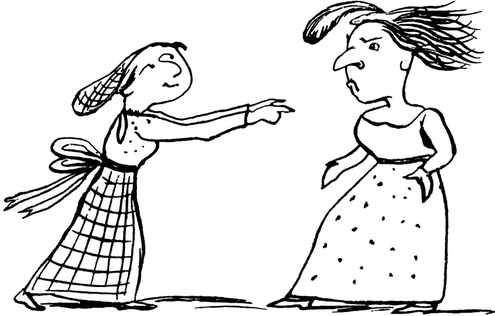
There was an old person of Loo,
Who said, ‘What on earth shall I do?’
When they said, ‘Go away!’—she continued to stay,
That vexatious old person of Loo.

There was an old person of Pisa,
Whose daughters did nothing to please her;
She dressed them in gray, and banged them all day,
Round the walls of the city of Pisa.
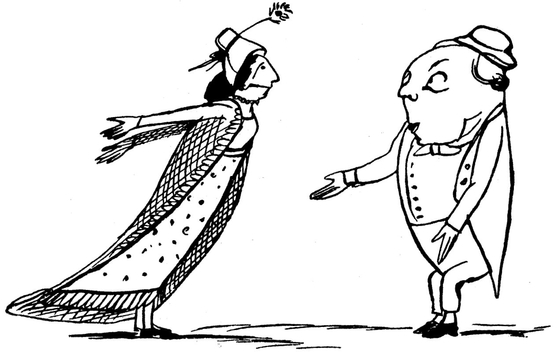
There was an old man in a garden,
Who always begged every-one’s pardon;
When they asked him, ‘What for?’—He replied ‘You’re a bore!
And I trust you’ll go out of my garden.’
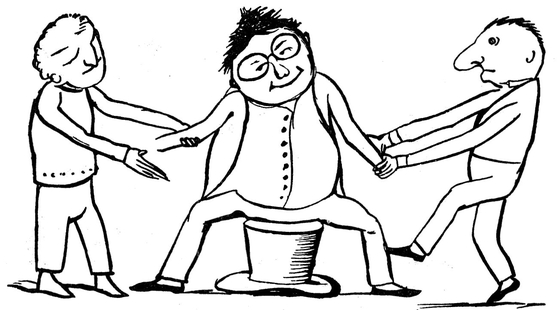
There was an old man of Thames Ditton,
Who called for something to sit on;
But they brought him a hat, and said—‘Sit upon that,
You abruptious old man of Thames Ditton!’
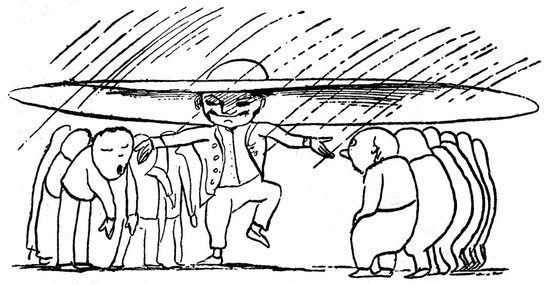
Three was an old man of Dee-side
Whose hat was exceedingly wide,
But he said ‘Do not fail, If it happen to hail
To come under my hat at Dee-side!’
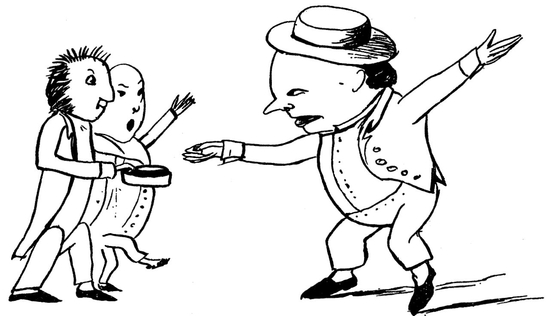
There was an old man at a Station,
Who made a promiscuous oration;
But they said, ‘Take some snuff!—You have talk’d quite enough
You afflicting old man at a Station!’
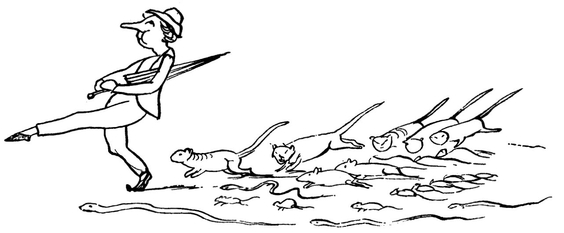
There was an old person of Shields,
Who frequented the valley and fields;
All the mice and the cats, And the snakes and the rats,
Followed after that person of Shields.
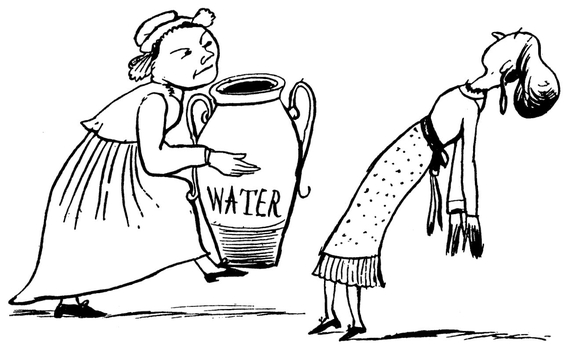
There was a young person in pink,
Who called out for something to drink;
But they said, ‘0 my daughter, There’s nothing but water!’
Which vexed that young person in pink.
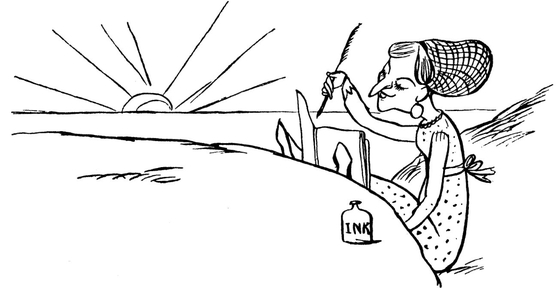
There was a young person whose history,
Was always considered a mystery;
She sate in a ditch, although no one knew which,
And composed a small treatise on history.
TWENTY-SIX NONSENSE RHYMES AND PICTURES
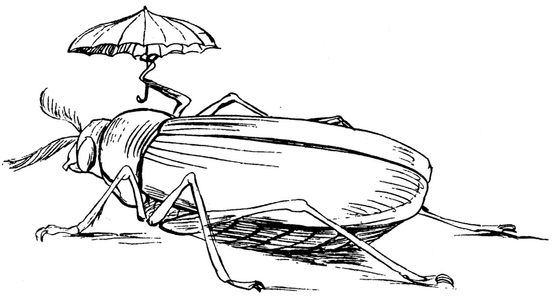
The Bountiful Beetle,
who always carried a Green Umbrella when it didn’t rain,
and left it at home when it did.

The Comfortable Confidential Cow,
who sate in her Red Morocco Arm Chair and
toasted her own Bread at the parlour Fire.
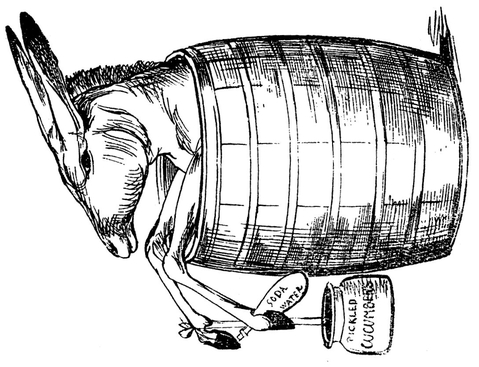
The Fizzgiggious Fish,
who always walked about upon Stilts.
because he had no legs.
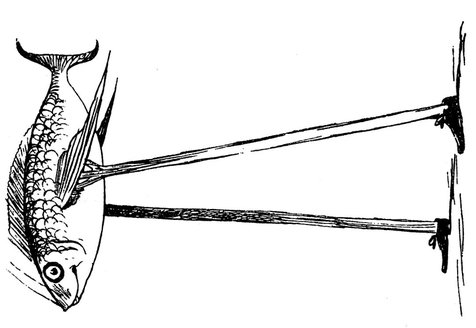
The Absolutely Abstemious Ass,
who resided in a Barrel, and only lived on
Soda Water and Pickled
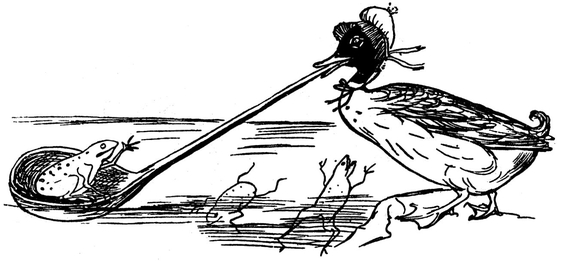
The Dolomphious Duck,
who caught Spotted Frogs for her dinner
with a Runcible Spoon.
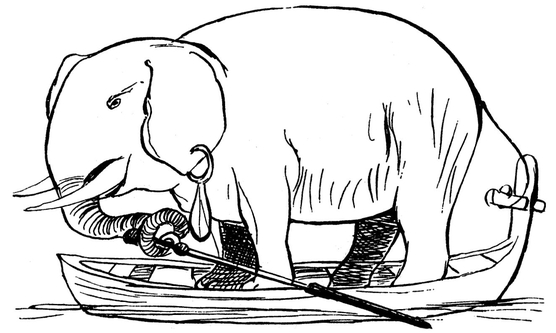
The Enthusiastic Elephant,
who ferried himself across the water with the
Kitchen Poker and a New pair of Ear-rings.
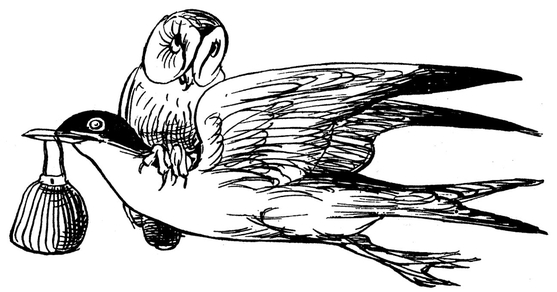
The Goodnatured Grey Gull,
who carried the Old Owl, and his Crimson Carpet-bag,
across the river, because he could not swim.
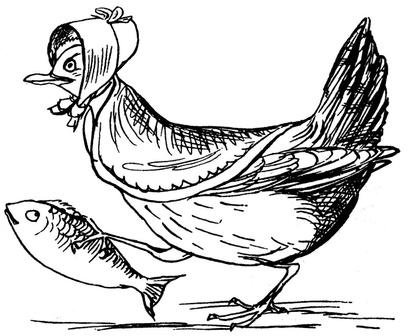
The Hasty Higgeldipiggledy Hen,
who went to market in a Blue Bonnet and Shawl,
and bought a Fish for her Supper.
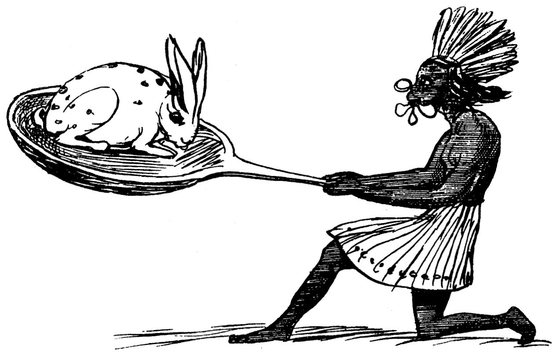
The Inventive Indian,
who caught a Remarkable Rabbit in a
Stupendous Silver Spoon.
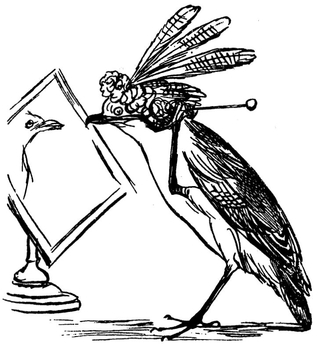
The Judicious Jubilant Jay,
who did up her Back Hair every morning with a Wreath of Roses
Three feathers, and a Gold Pin.
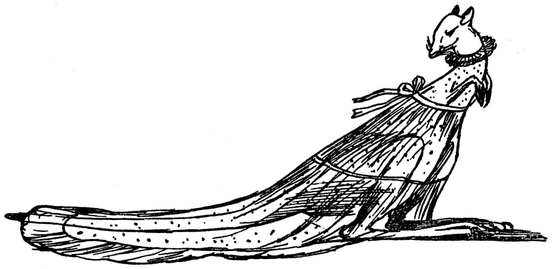
The Kicking Kangaroo,
who wore a Pale Pink Muslin dress
with Blue spots.
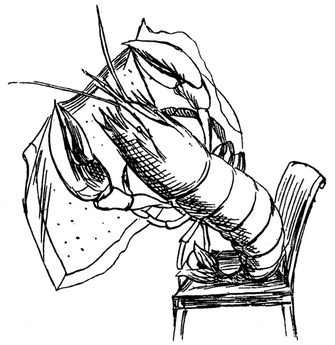
The Lively Learned Lobster,
who mended his own Clothes with
a Needle and Thread.
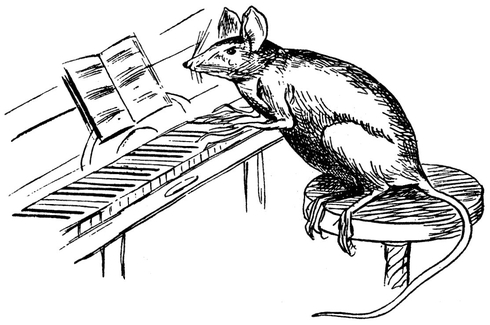
The Melodious Meritorious Mouse,
who played a merry minuet on the
Piano-forte.
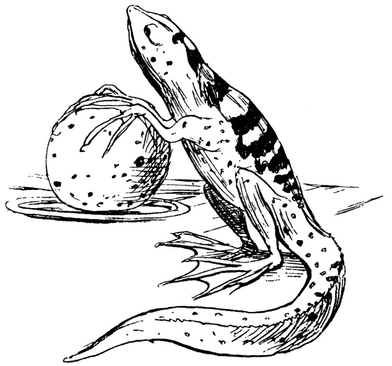
The Nutritious Newt,
who purchased a Round Plum-pudding
for his grand-daughter.
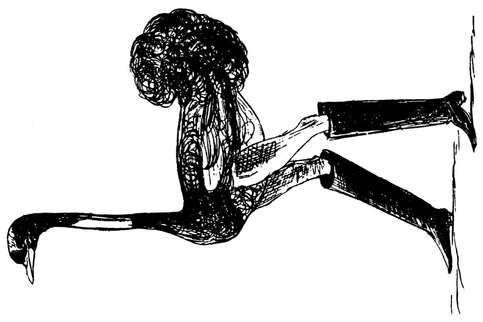
The Umbrageous Umbrella-maker,
whose Face nobody ever saw, because it was
always covered by his Umbrella.
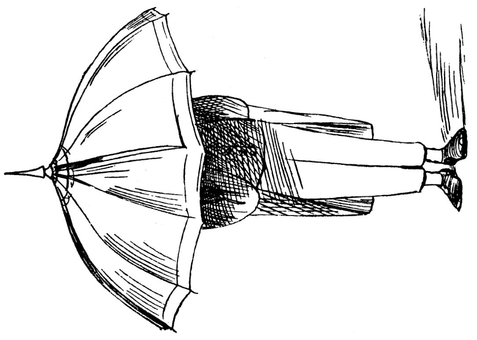
The Obsequious Ornamental Ostrich,
who wore Boots to keep his
feet quite dry.
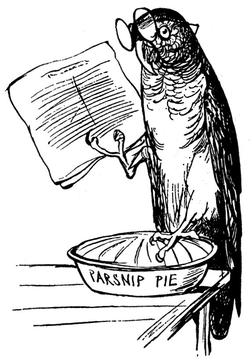
The Perpendicular Purple Polly,
who read the Newspaper and ate Parsnip Pie
with his Spectacles.
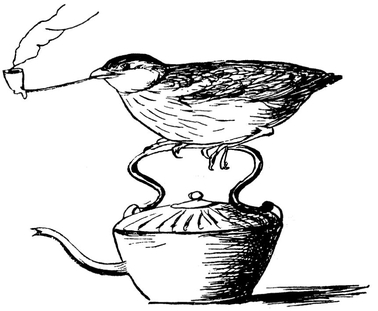
The Queer Querulous Quail,
who smoked a Pipe of tobacco on the top of
a Tin Tea-kettle.
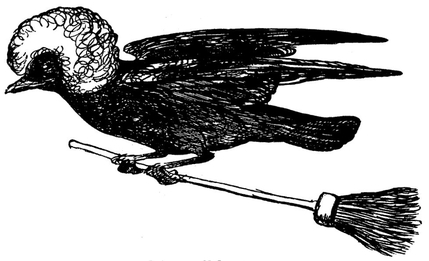
The Rural Runcible Raven,
who wore a White Wig and flew away
with the Carpet Broom.
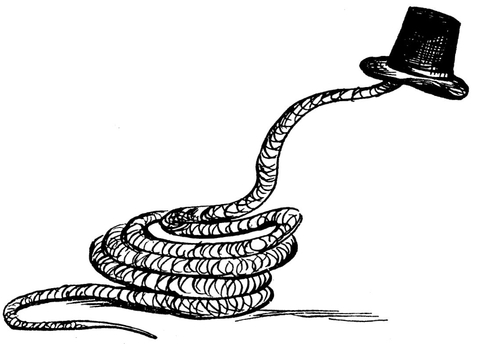
The Scroobious Snake,
who always wore a Hat on his Head, for
fear he should bite anybody.
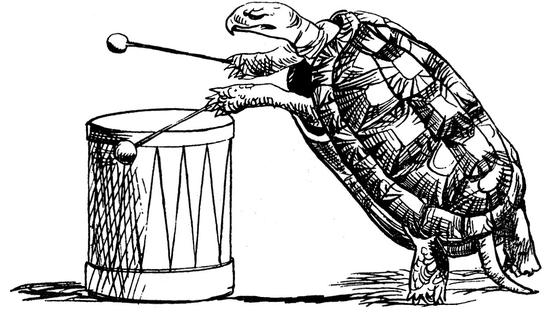
The Tumultuous Tom-tommy Tortoise,
who beat a Drum all day long in the
middle of the wilderness.
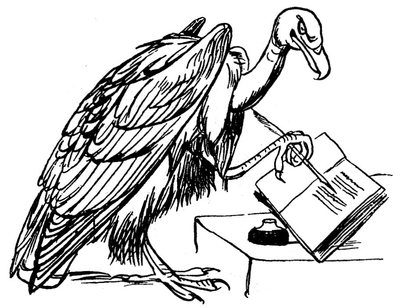
The Visibly Vicious Vulture,
who wrote some Verses to a Veal-cutlet in a
Volume bound in Vellum.
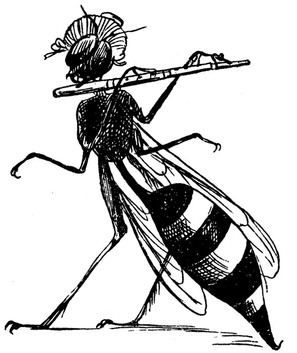
The Worrying Whizzing Wasp,
who stood on a Table, and played sweetly on a
Flute with a Morning Cap.
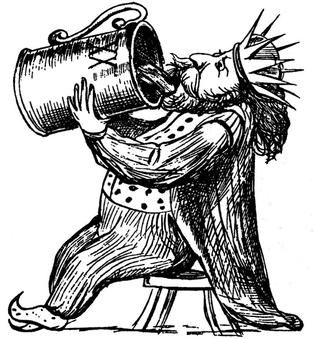
The Excellent Double-extra XX
imbibing King Xerxes, who lived a
long while ago.
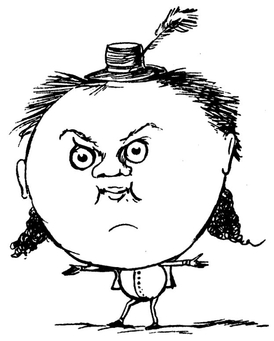
The Yonghy-Bonghy-Bo,
whose Head was ever so much bigger than his
Body, and whose Hat was rather small.
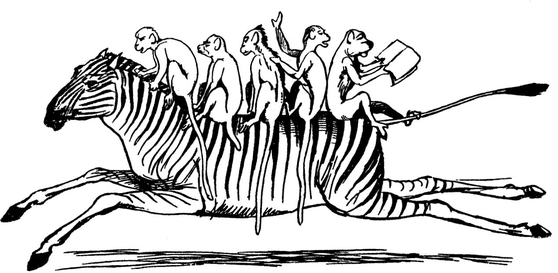
The Zigzag Zealous Zebra,
who carried five Monkeys on his back all
the way to Jellibolee.
IV
LAUGHABLE LYRICS A FOURTH BOOK OF NONSENSE POEMS, SONGS, BOTANY, MUSIC, &c. (1877)
NONSENSE SONGS
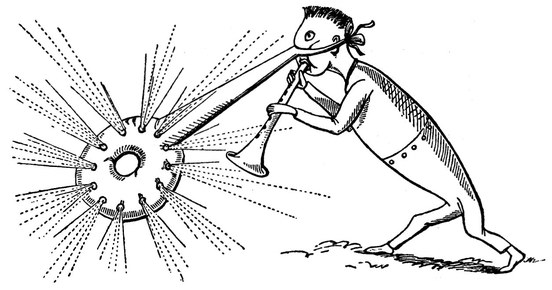
THE DONG WITH A LUMINOUS NOSE
When awful darkness and silence reign
Over the great Gromboolian plain,
Through the long, long wintry nights;—
When the angry breakers roar
As they beat on the rocky shore;—
When Storm-clouds brood on the towering heights
Of the Hills of the Chankly Bore:—
Then, through the vast and gloomy dark,
There moves what seems a fiery spark,
A lonely spark with silvery rays
Piercing the coal black night,—
A Meteor strange and bright:—
Hither and thither the vision strays,
A single lurid light.
Slowly it wanders,—pauses,—creeps,—
Anon it sparkles,—flashes and leaps;
And ever as onward it gleaming goes
A light on the Bong-tree stems it throws.
And those who watch at that midnight hour
From Hall or Terrace, or lofty Tower,
Cry, as the wild light passes along,—
‘The Dong!—the Dong!
‘The wandering Dong through the forest goes!
‘The Dong! the Dong!
‘The Dong with a luminous Nose!’
Long years ago
The Dong was happy and gay,
Till he fell in love with a Jumbly Girl
Who came to those shores one day,
For the Jumblies came in a sieve, they did,—
Landing at eve near the Zemmery Fidd
Where the Oblong Oysters grow,
And the rocks are smooth and gray.
And all the woods and the valleys rang
With the Chorus they daily and nightly sang,—
‘Far and few, far and few,
Are the lands where the Jumblies live;
Their heads are green, and their hands are blue
And they went to sea in a sieve.’
Happily, happily passed those days!
While the cheerful Jumblies staid;
They danced in circlets all night long,
To the plaintive pipe of the lively Dong,
In moonlight, shine, or shade.
For day and night he was always there
By the side of the Jumbly Girl so fair,
With her sky-blue hands, and her sea-green hair.
Till the morning came of that hateful day
When the Jumblies sailed in their sieve away,
And the Dong was left on the cruel shore
Gazing—gazing for evermore,—
Ever keeping his weary eyes on
That pea-green sail on the far horizon,—
Singing the Jumbly Chorus still
As he sate all day on the grassy hill,—
‘Far and few, far and few,
Are the lands where the Jumblies live;
Their heads are green, and their hands are blue,
And they went to sea in a sieve.’
But when the sun was low in the West,
The Dong arose and said;—
—‘What little sense I once possessed
Has quite gone out of my head!’—
And since that day he wanders still
By lake and forest, marsh and hill,
Singing—‘O somewhere, in valley or plain
‘Might I find my Jumbly Girl again!
‘For ever I’ll seek by lake and shore
‘Till I find my Jumbly Girl once more!’
Playing a pipe with silvery squeaks,
Since then his Jumbly Girl he seeks,
And because by night he could not see,
He gathered the bark of the Twangum Tree
On the flowery plain that grows.
And he wove him a wondrous Nose,—
A Nose as strange as a Nose could be!
Of vast proportions and painted red,
And tied with cords to the back of his head.
—In a hollow rounded space it ended
With a luminous Lamp within suspended,
All fenced about
With a bandage stout
To prevent the wind from blowing it out;—
And with holes all round to send the light,
In gleaming rays on the dismal night.
And now each night, and all night long,
Over those plains still roams the Dong;
And above the wail of the Chimp and Snipe
You may hear the squeak of his plaintive pipe
While ever he seeks, but seeks in vain
To meet with his Jumbly Girl again;
Lonely and wild—all night he goes,—
The Dong with a luminous Nose!
And all who watch at the midnight hour,
From Hall or Terrace, or lofty Tower,
Cry, as they trace the Meteor bright,
Moving along through the dreary night,—
‘This is the hour when forth he goes,
‘The Dong with a luminous Nose!
‘Yonder—over the plain he goes;
‘He goes!
‘He goes;
‘The Dong with a luminous Nose!’
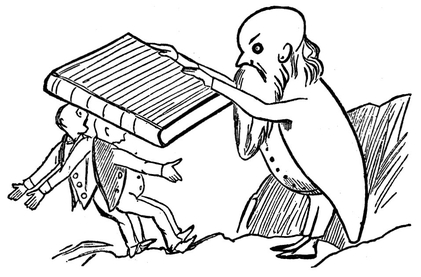
THE TWO OLD BACHELORS
Two old Bachelors were living in one house;
One caught a Muffin, the other caught a Mouse.
Said he who caught the Muffin to him who caught the Mouse,—
‘This happens just in time! For we’ve nothing in the house,
‘Save a tiny slice of lemon and a teaspoonful of honey,
‘And what to do for dinner—since we haven’t any money?
‘And what can we expect if we haven’t any dinner,
‘But to lose our teeth and eyelashes and keep on growing thinner?’
Said he who caught the Mouse to him who caught the Muffin,—
‘We might cook this little Mouse, if we only had some Stuffin’!
‘If we had but Sage and Onion we could do extremely well,
‘But how to get that Stuffin’ it is difficult to tell’—
Those two old Bachelors ran quickly to the town
And asked for Sage and Onions as they wandered up and down;
They borrowed two large Onions, but no Sage was to be found
In the Shops, or in the Market, or in all the Gardens round.
But some one said,—‘A hill there is, a little to the north,
‘And to its purpledicular top a narrow way leads forth;—
‘And there among the rugged rocks abides an ancient Sage,—
‘An earnest Man, who reads all day a most perplexing page.
1 comment